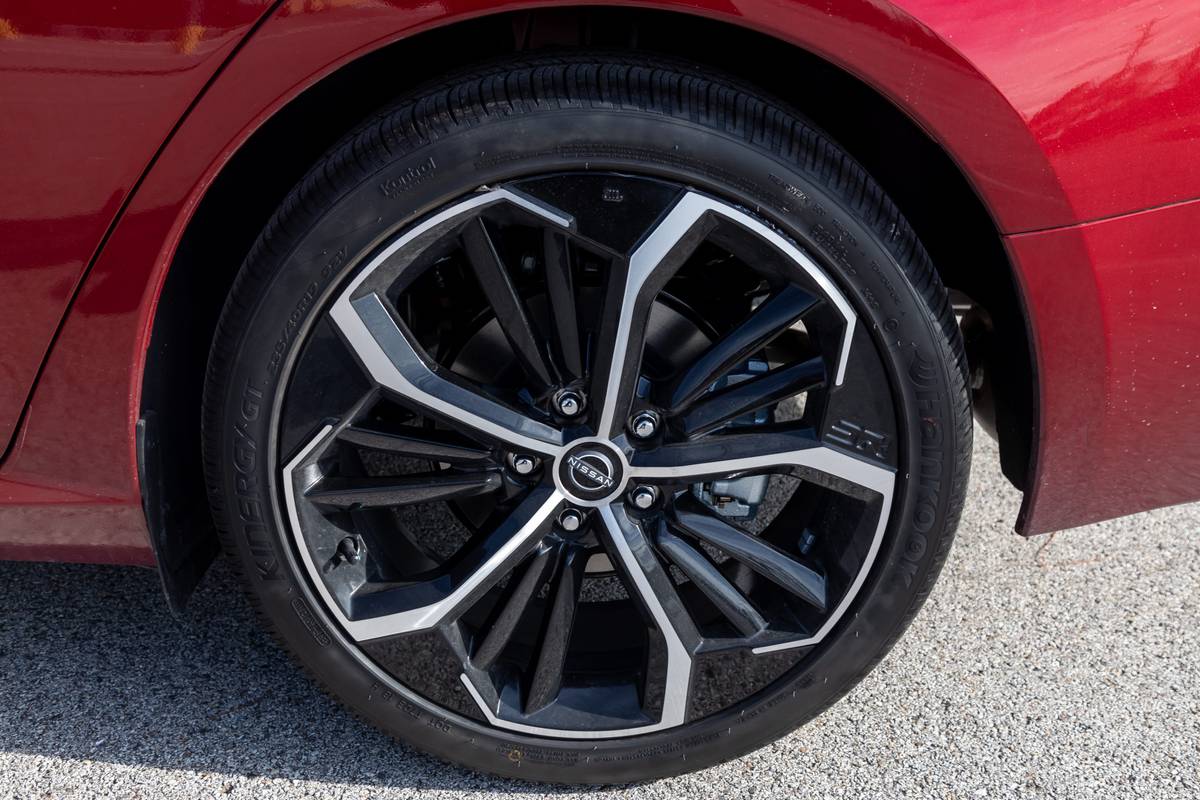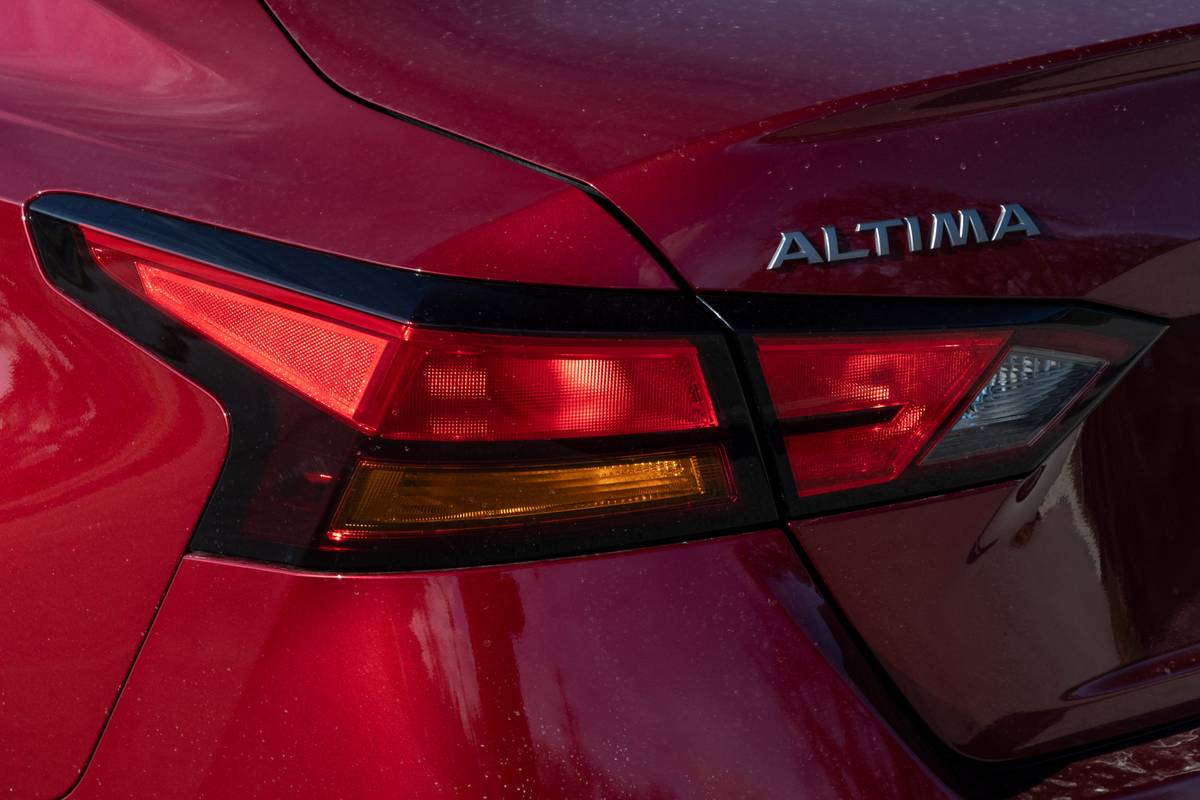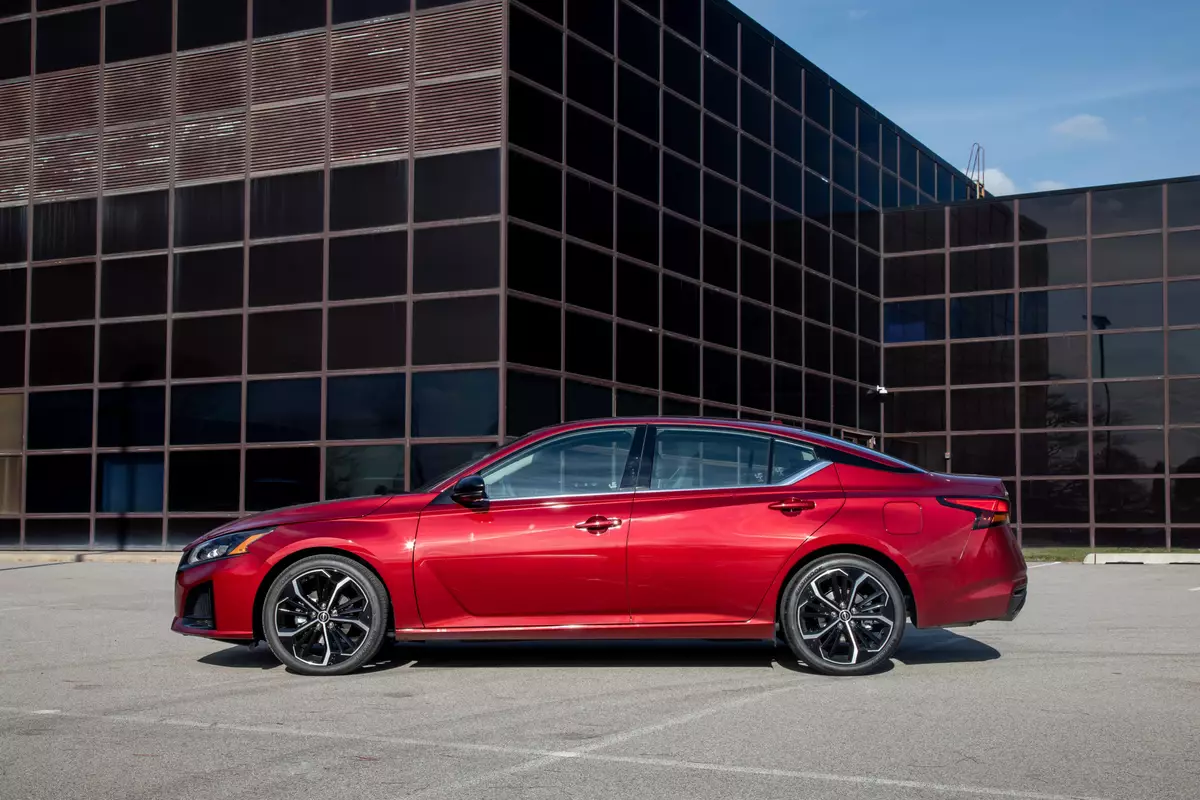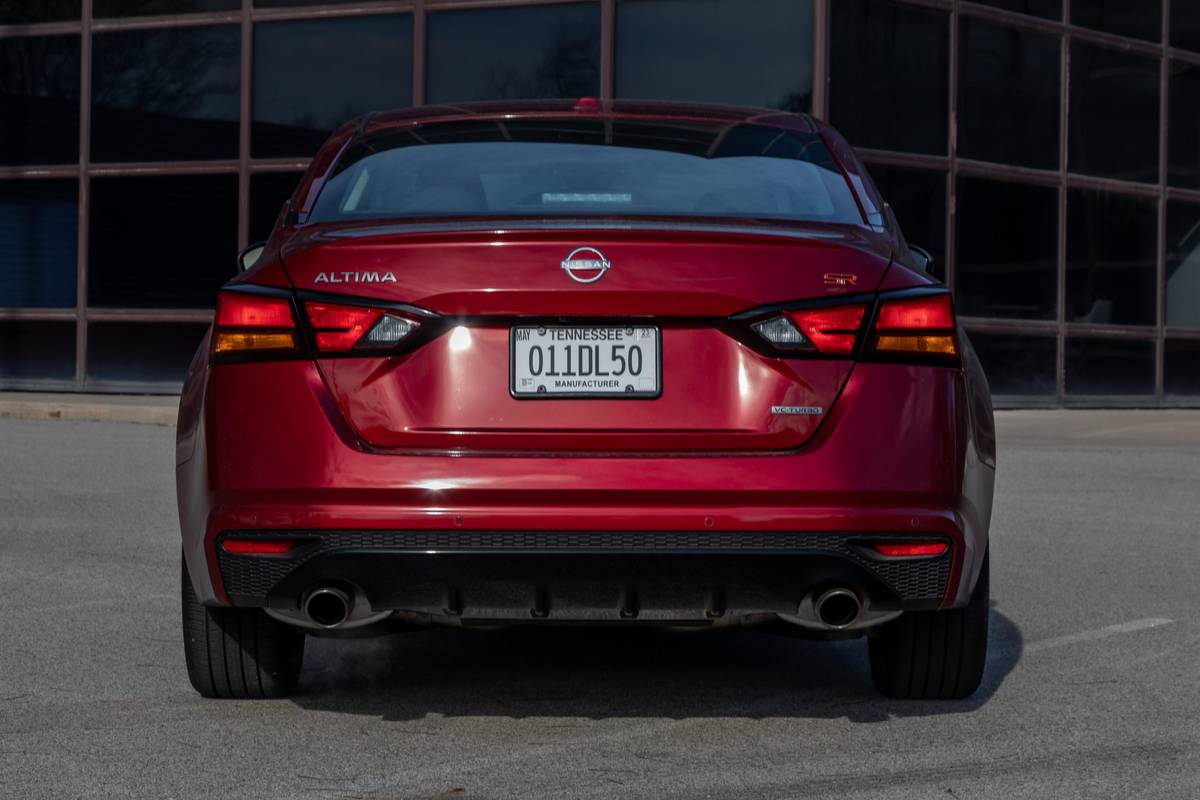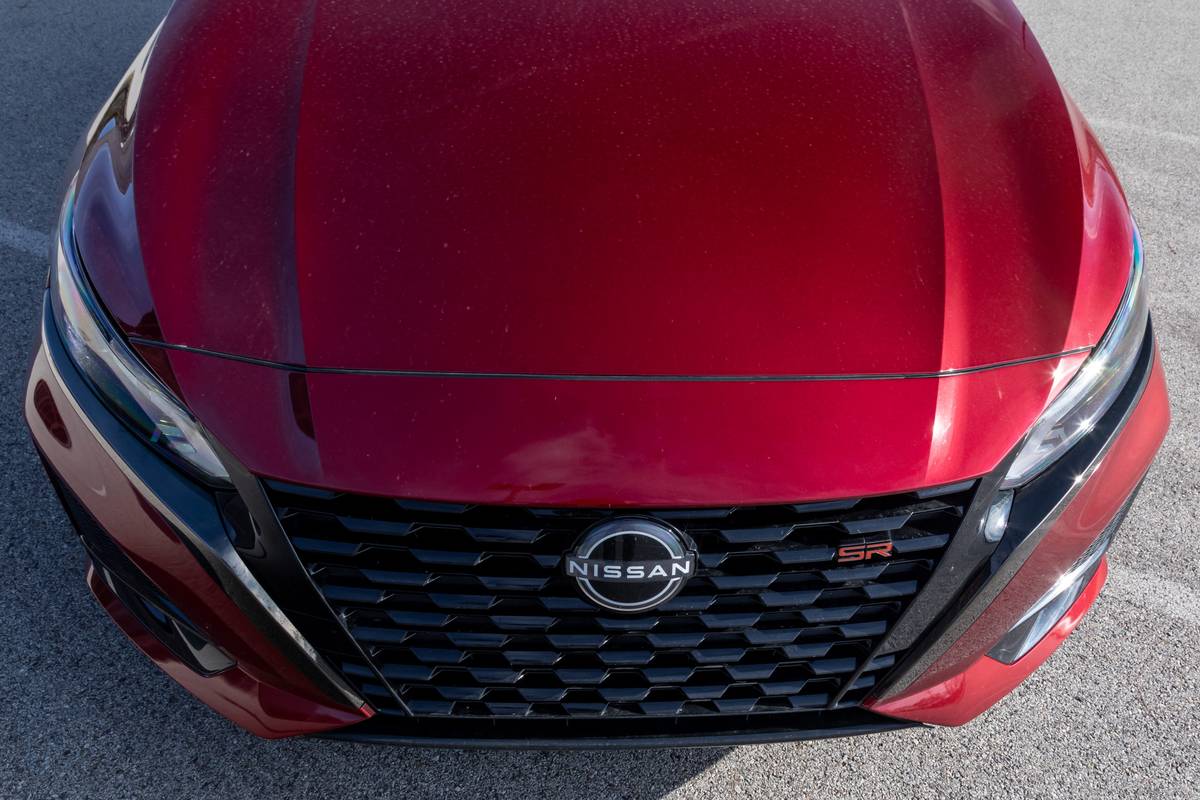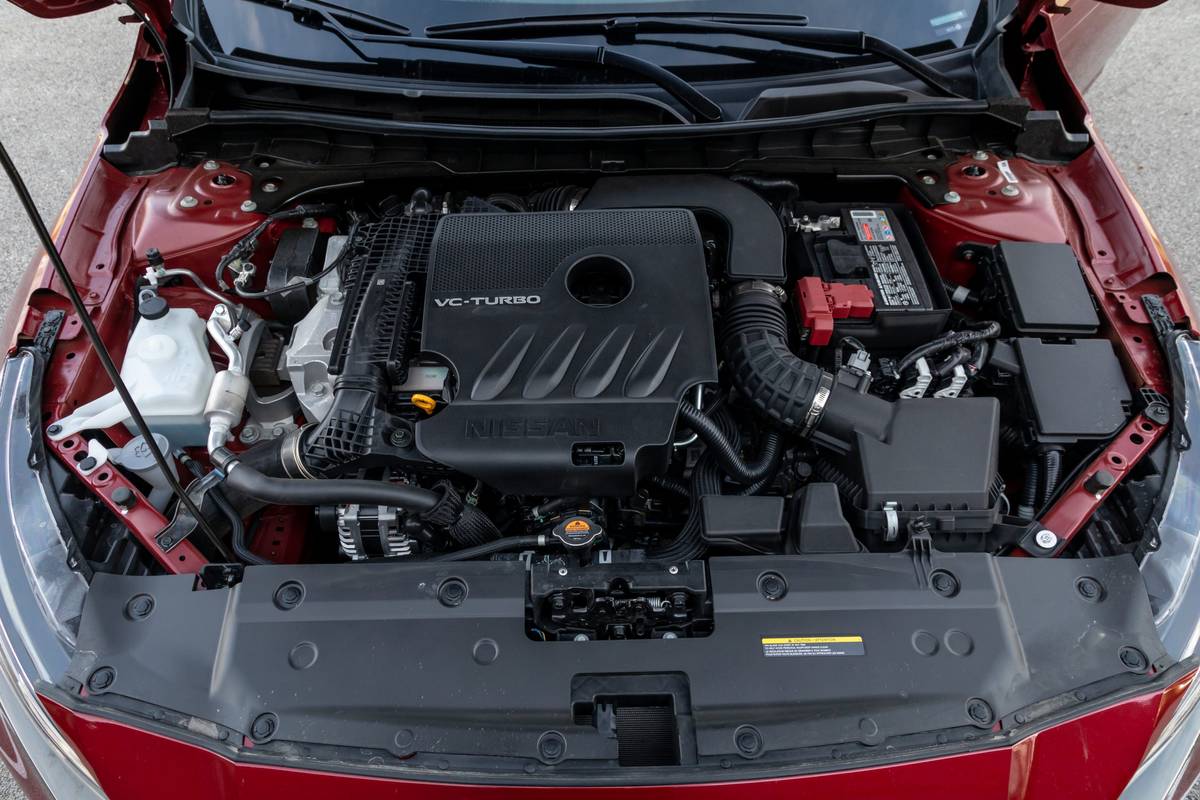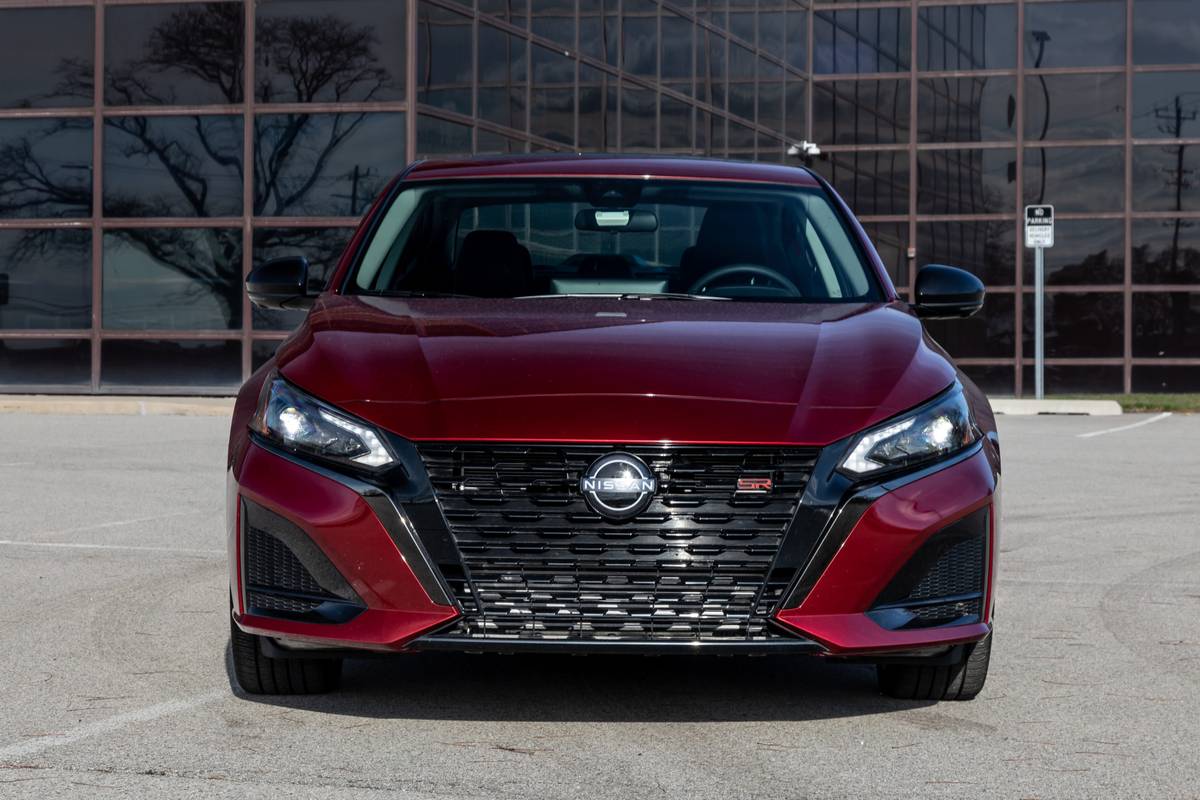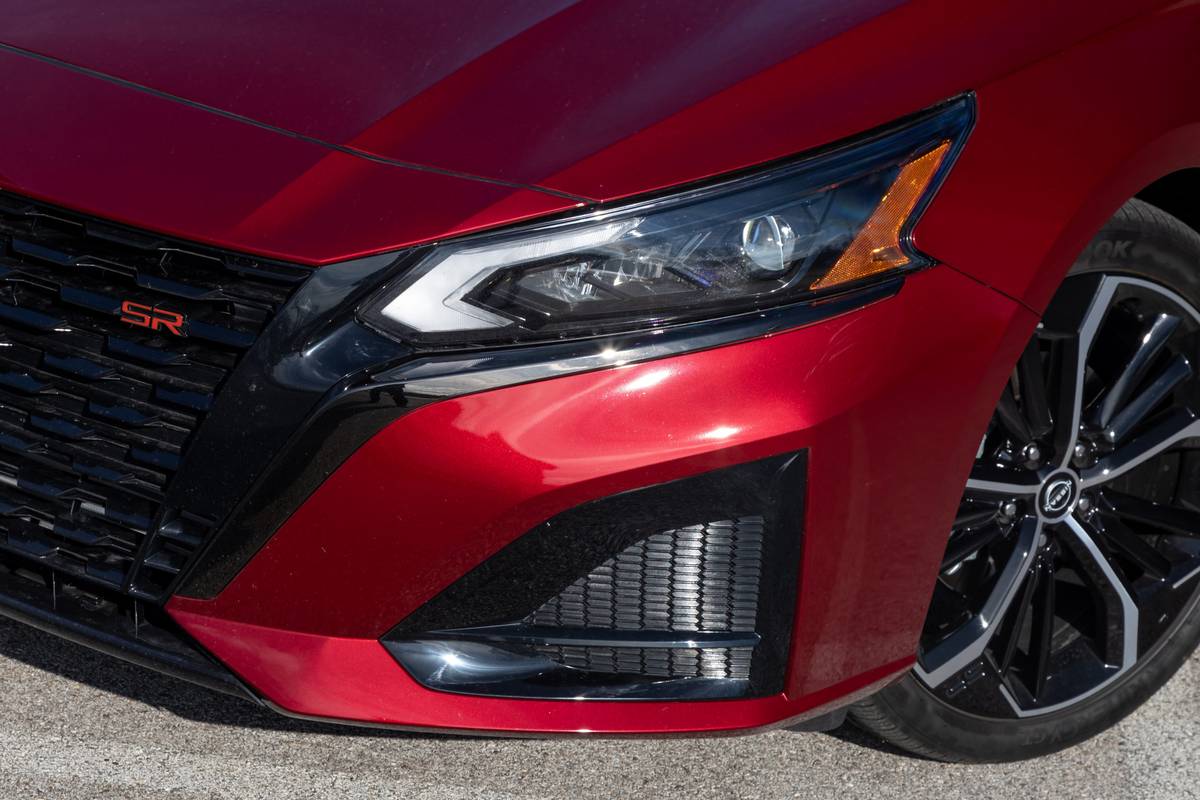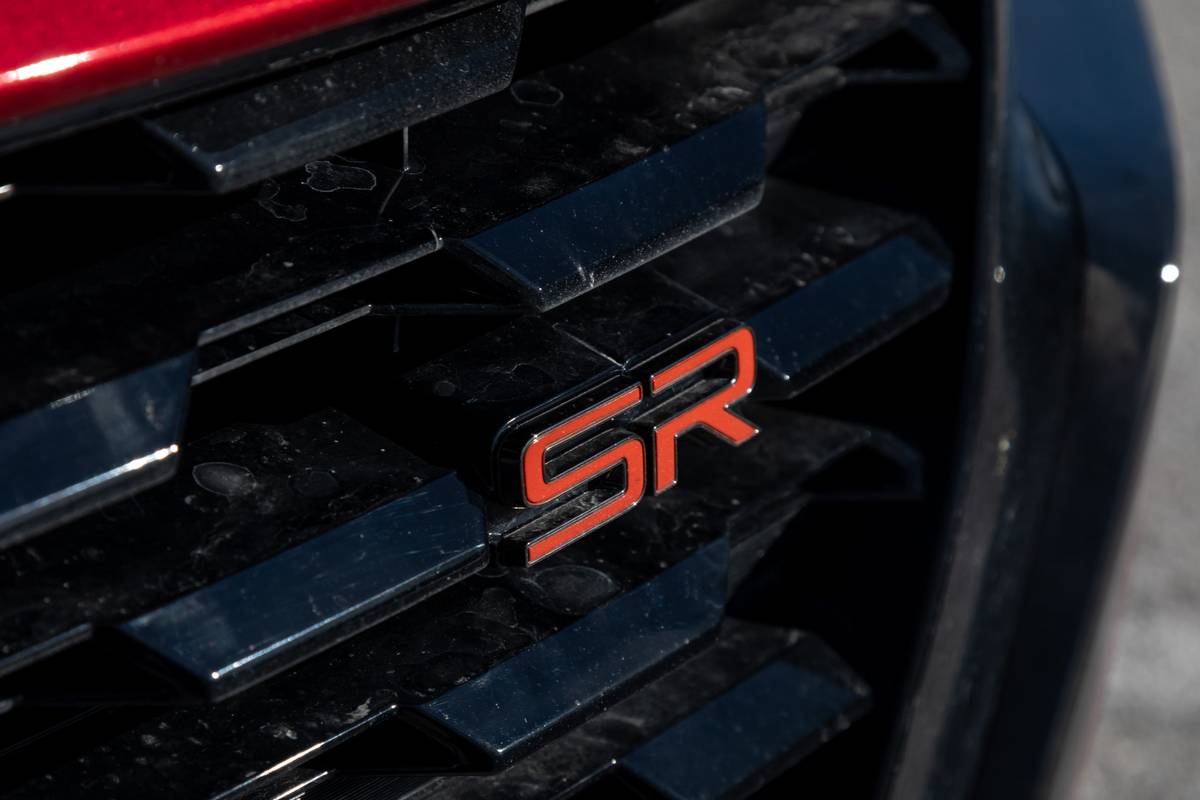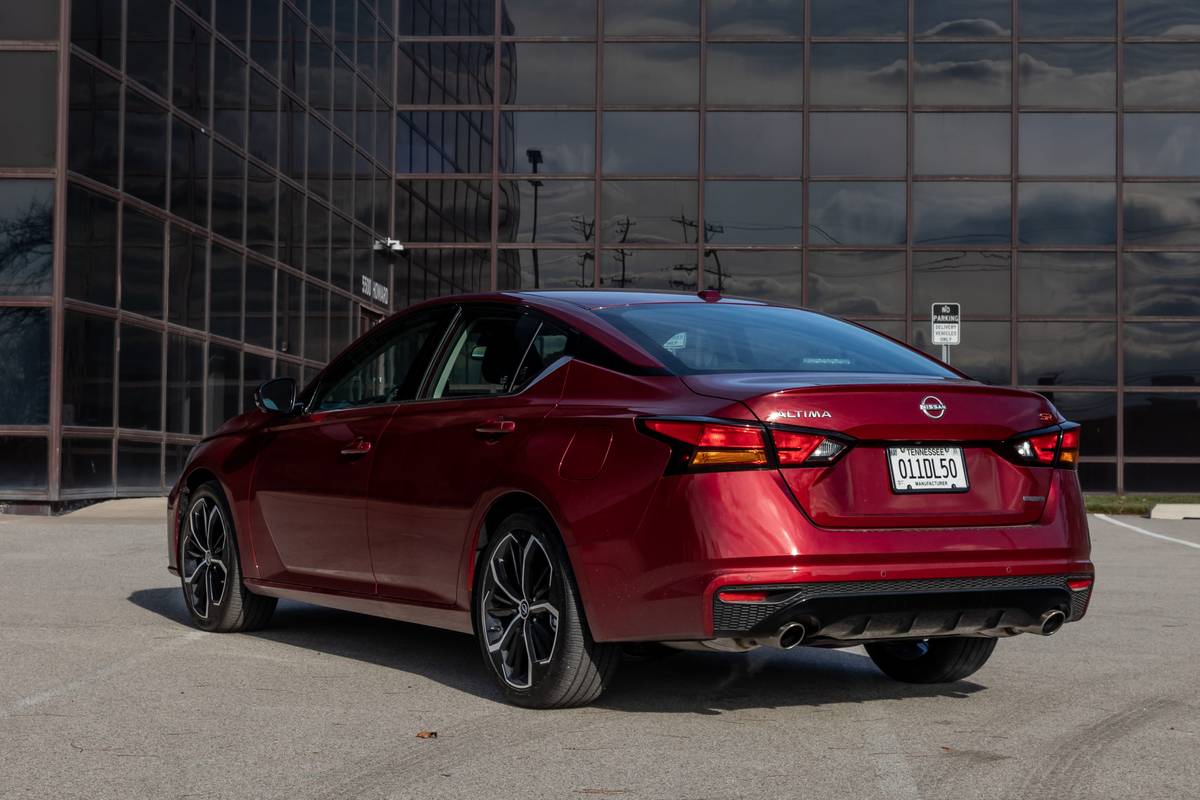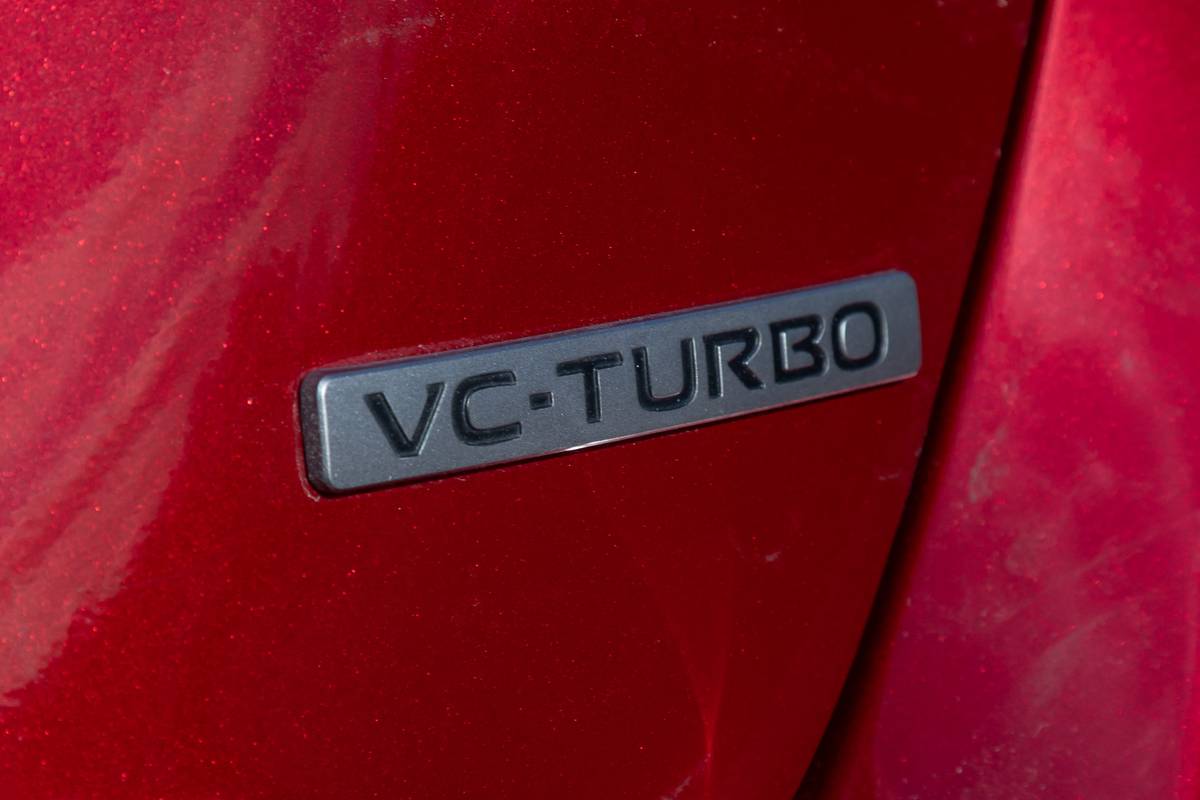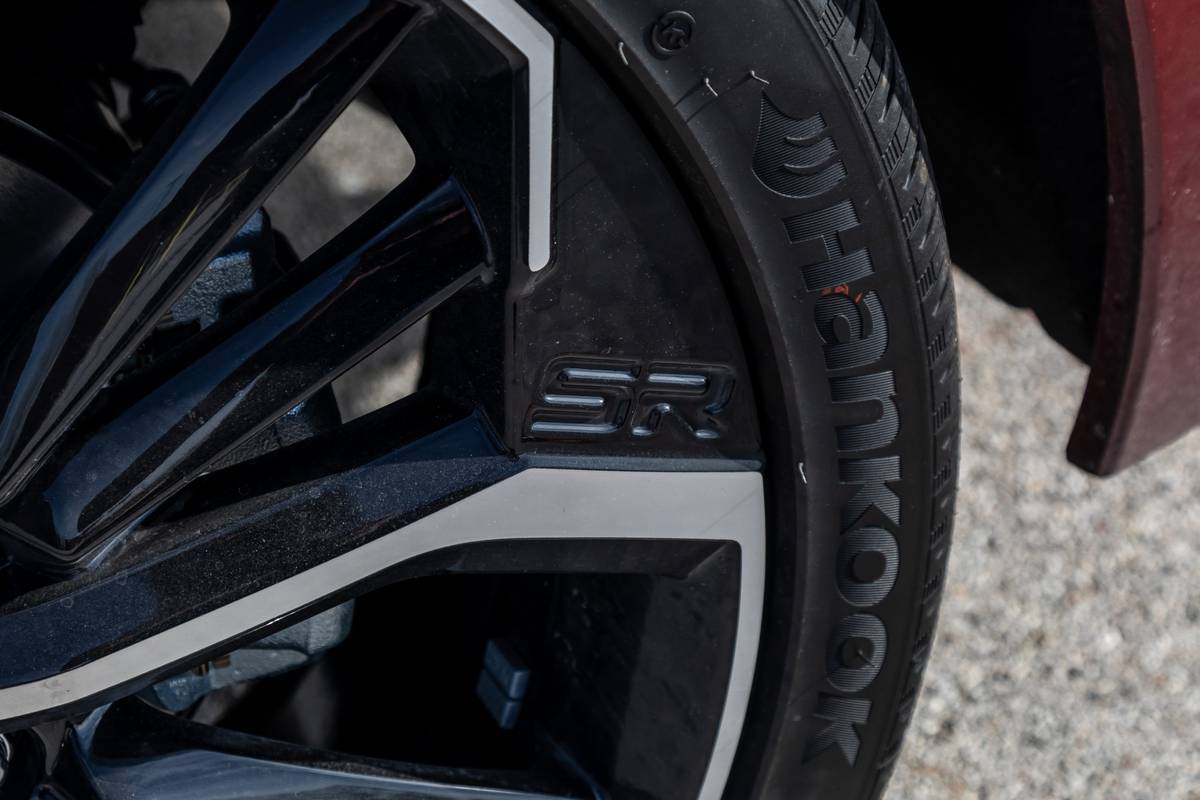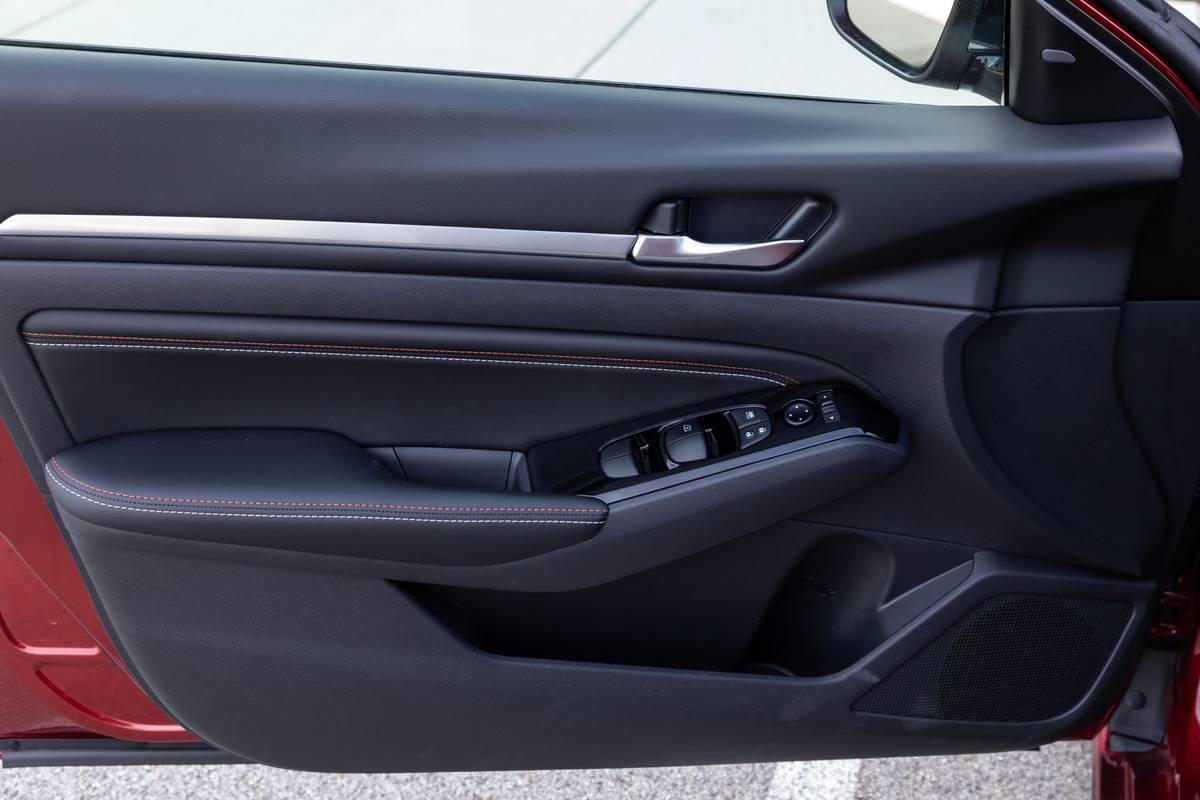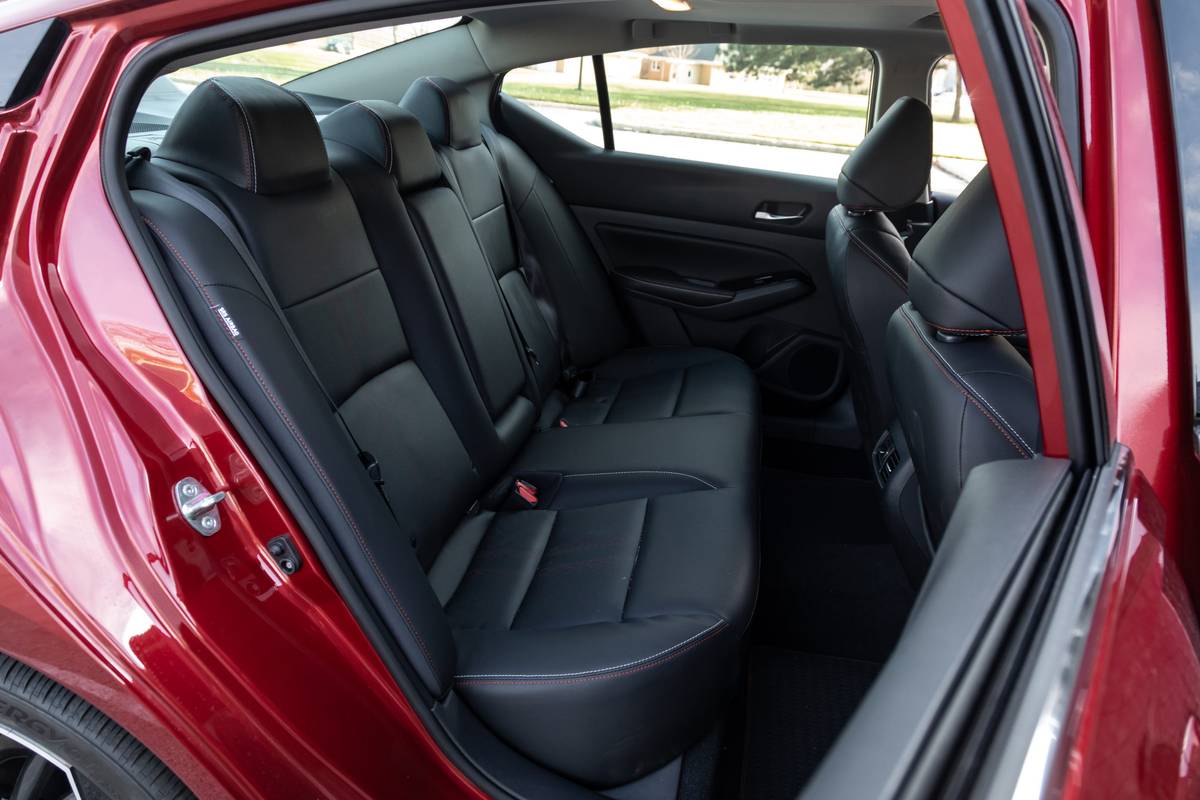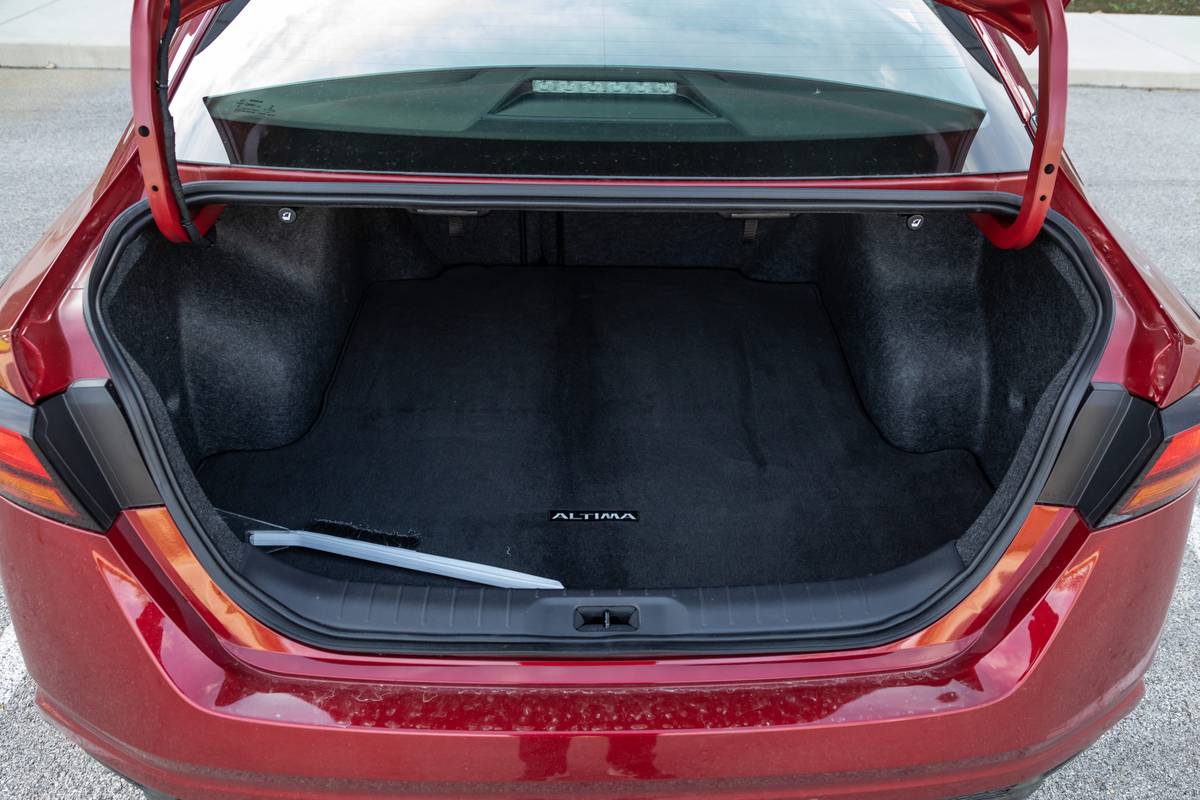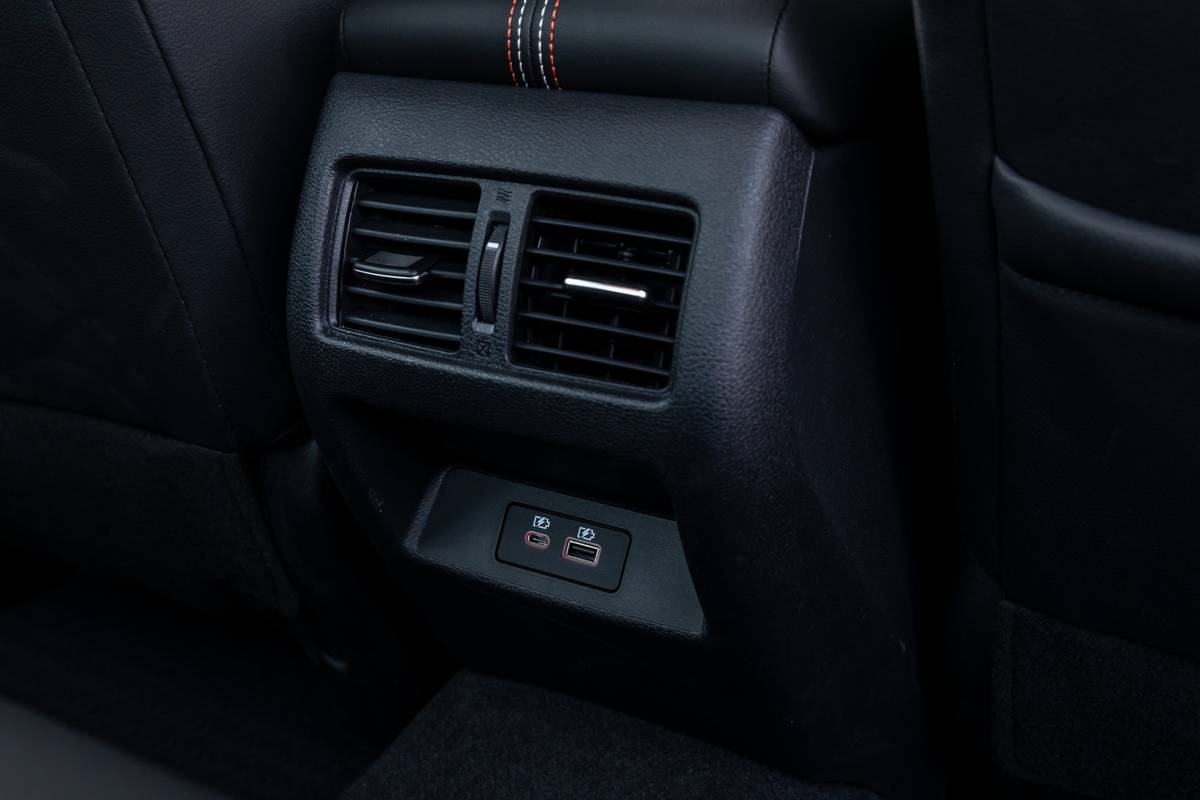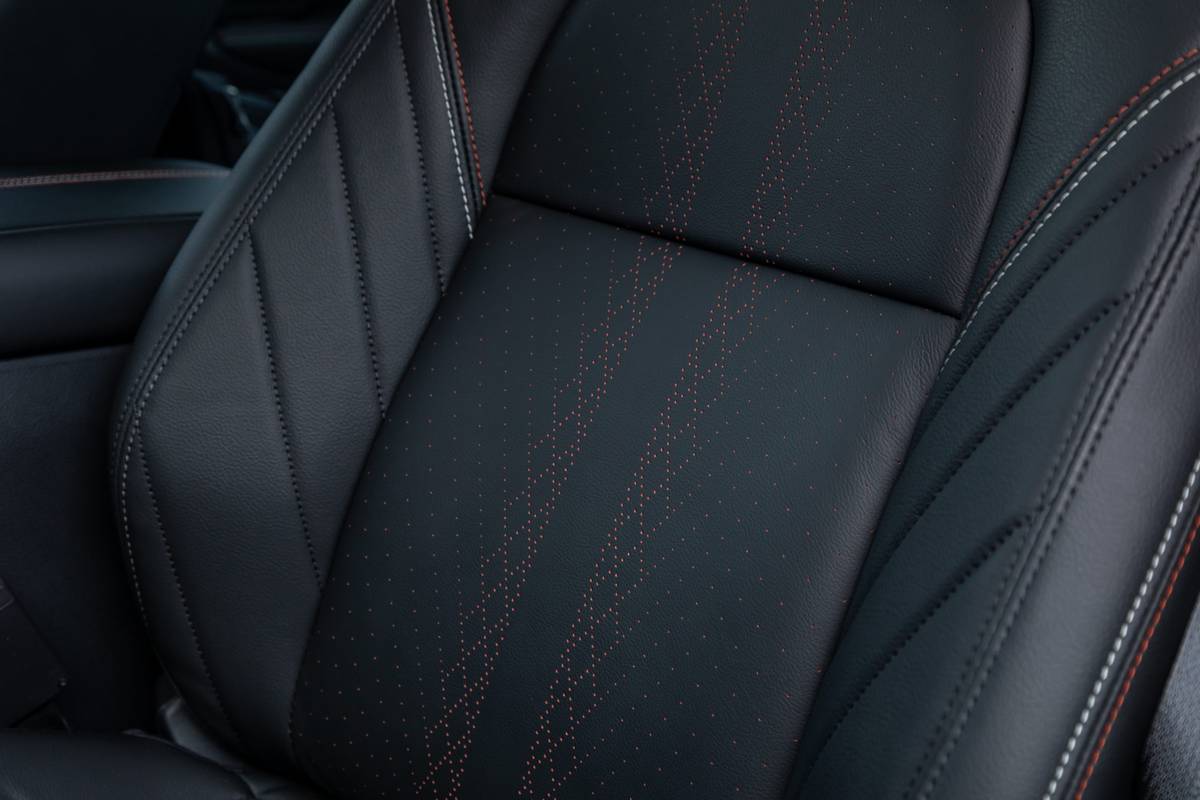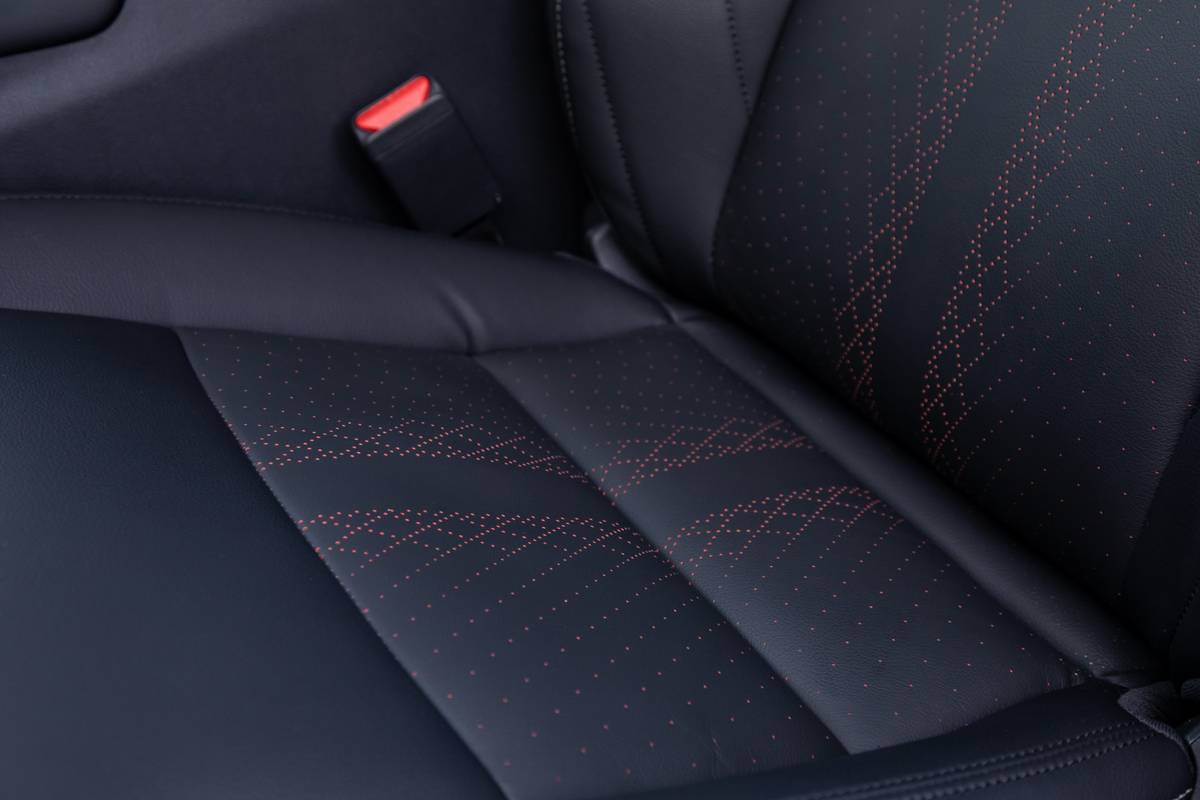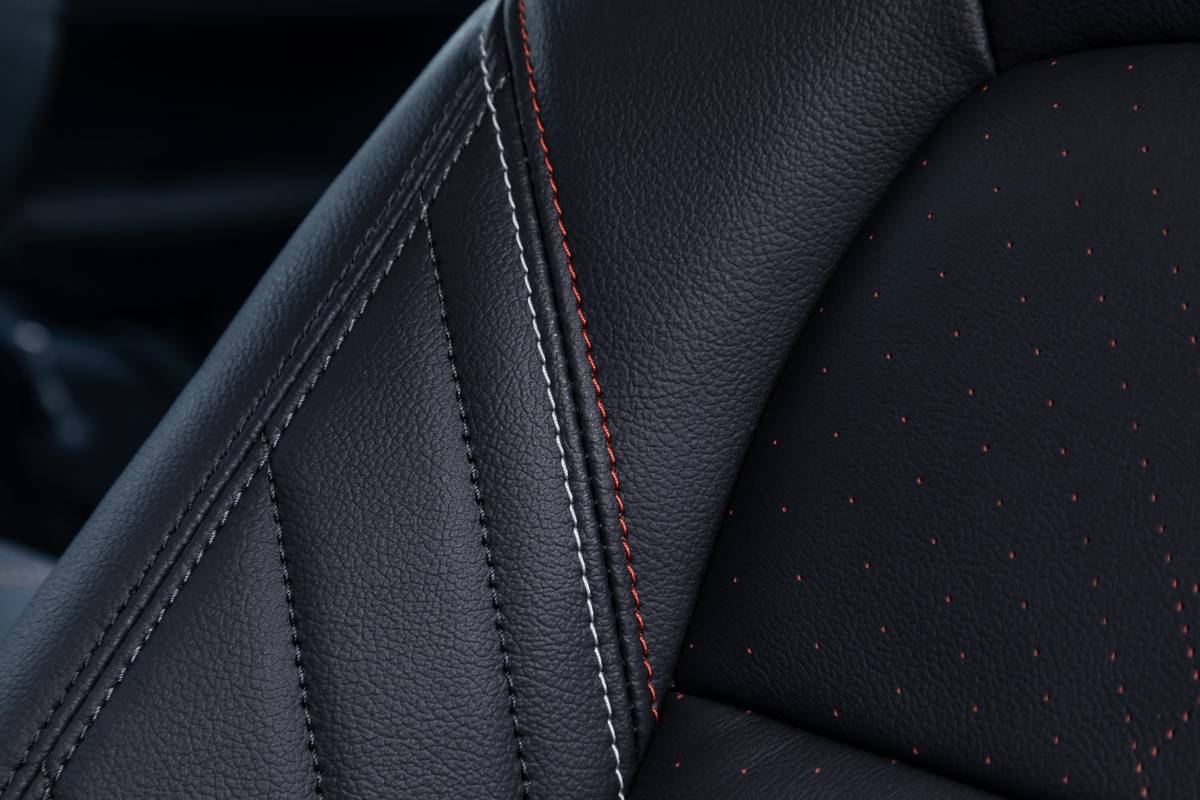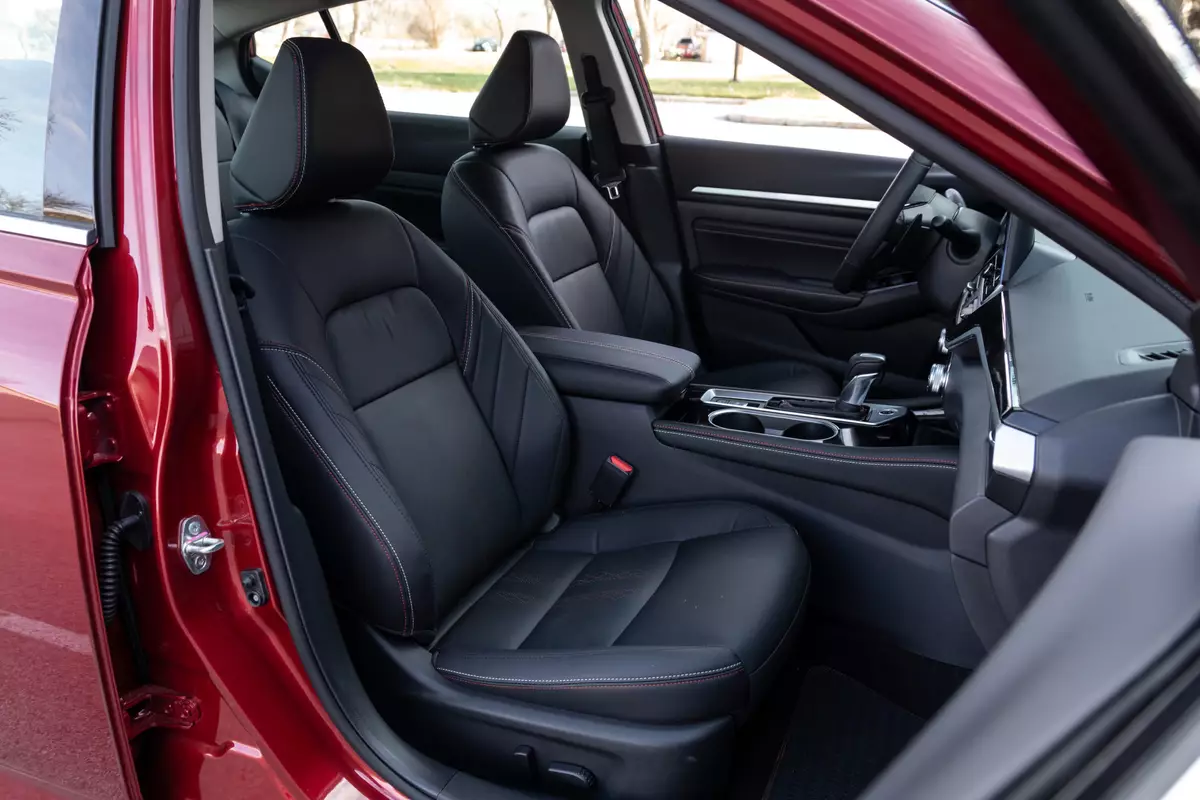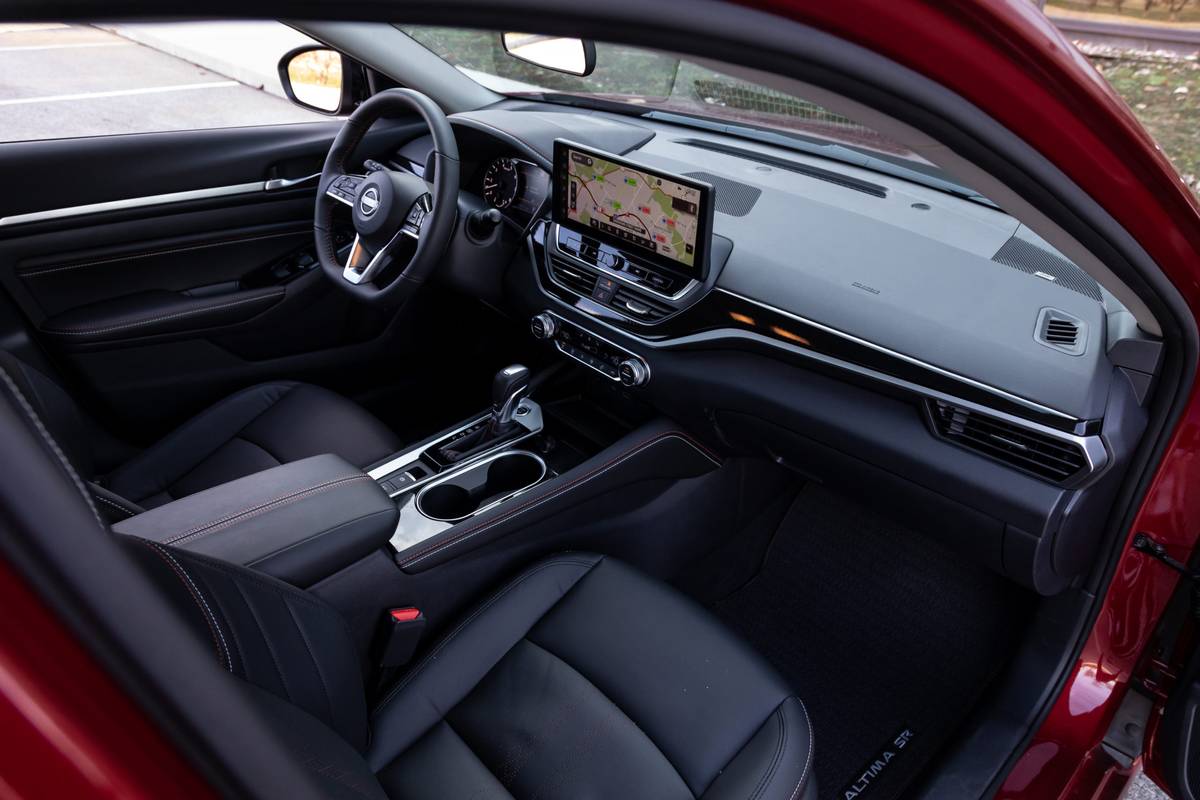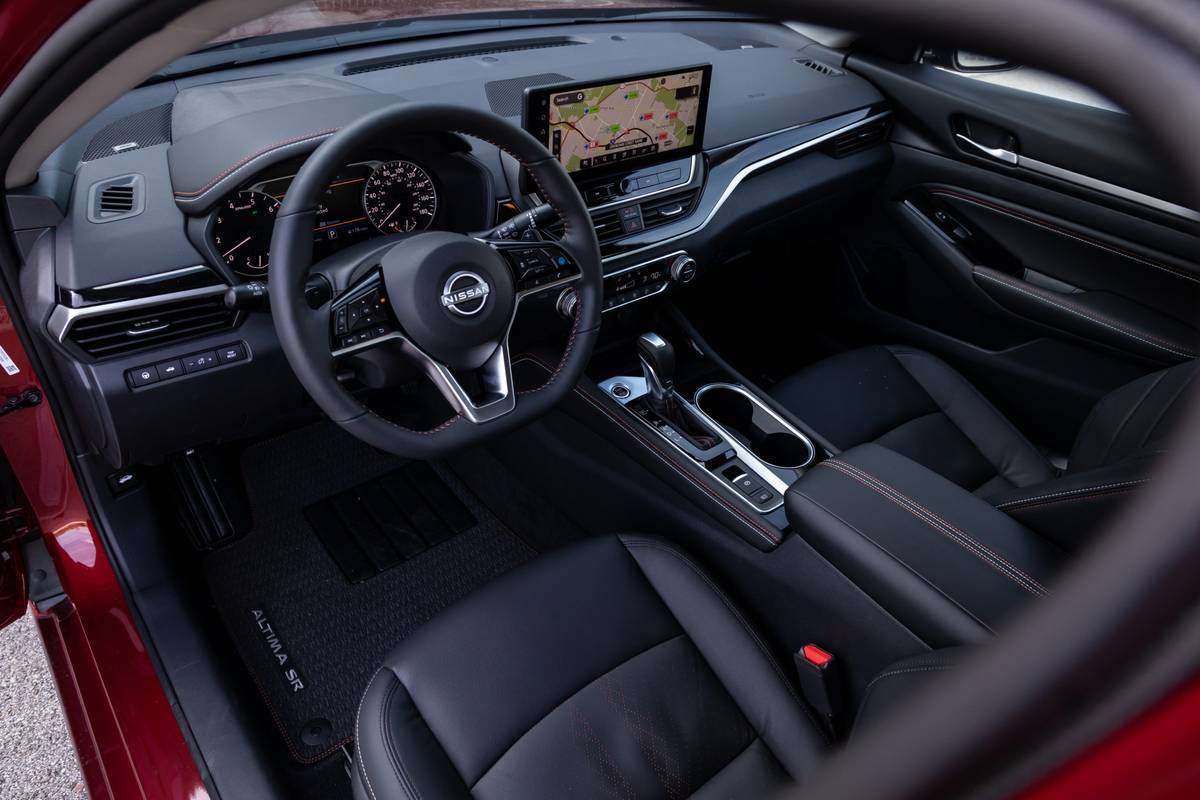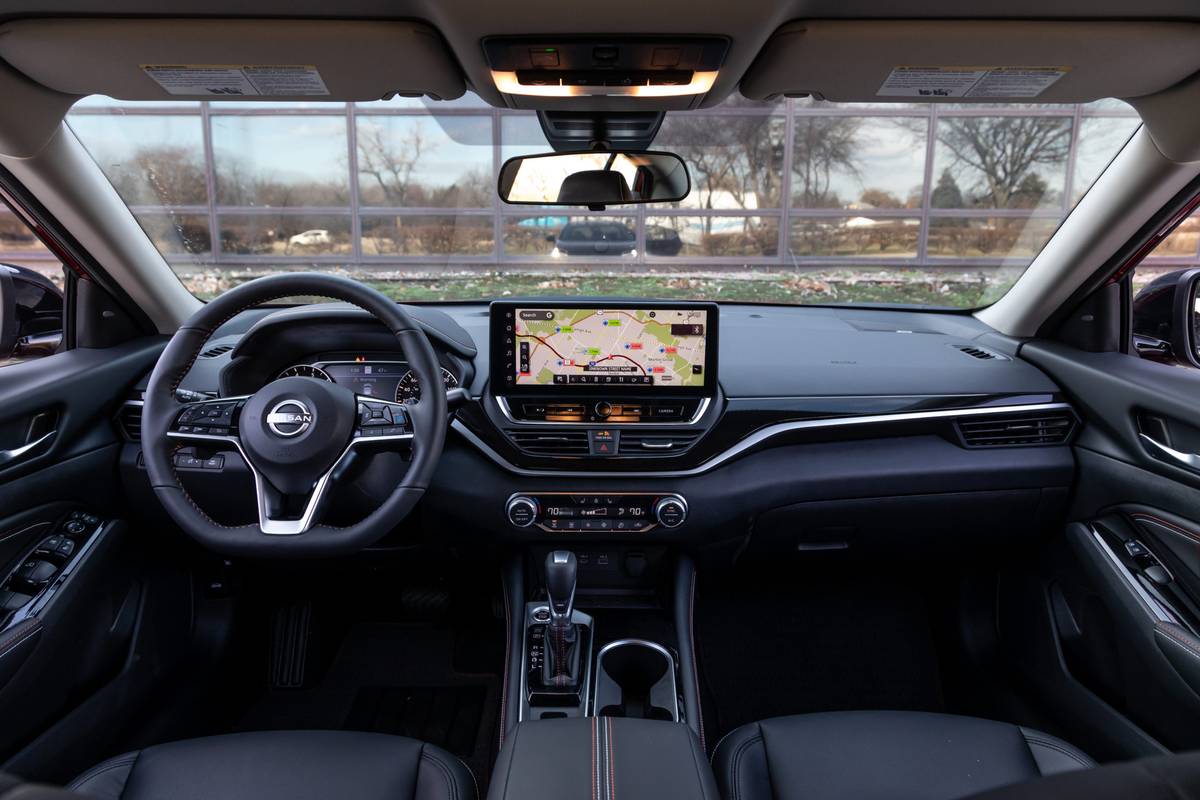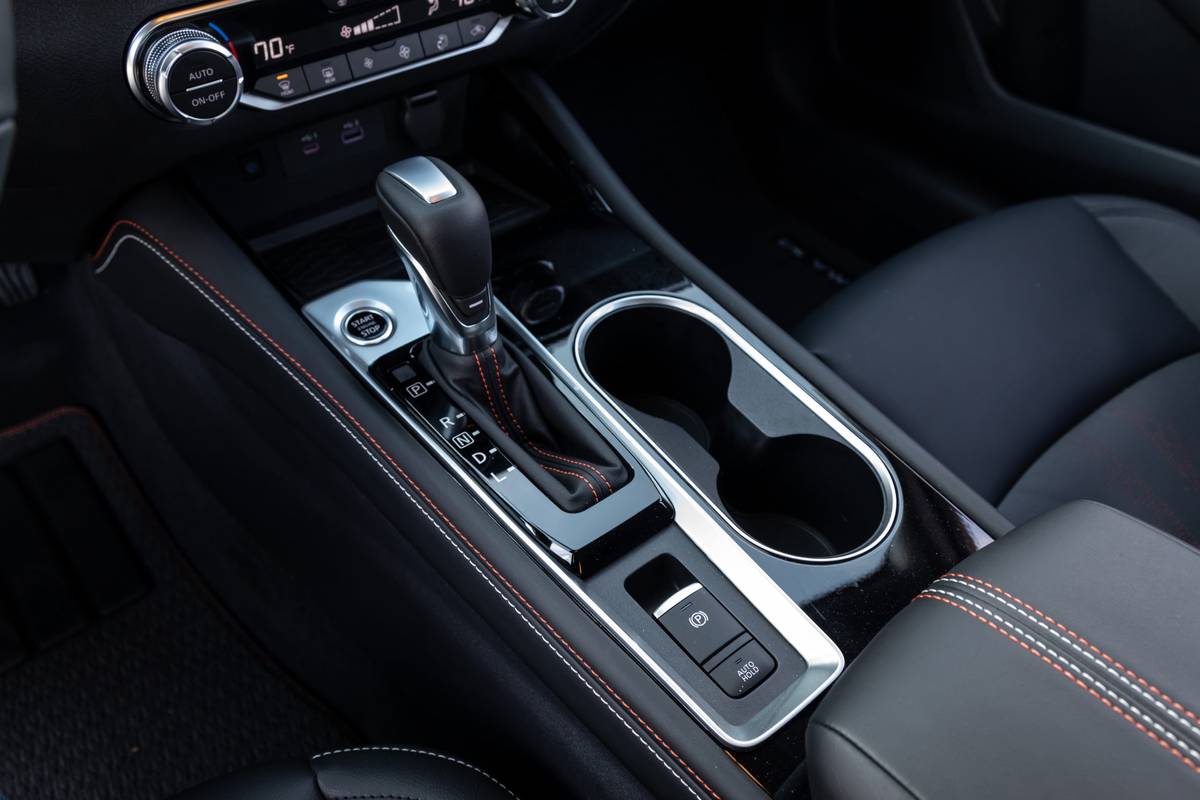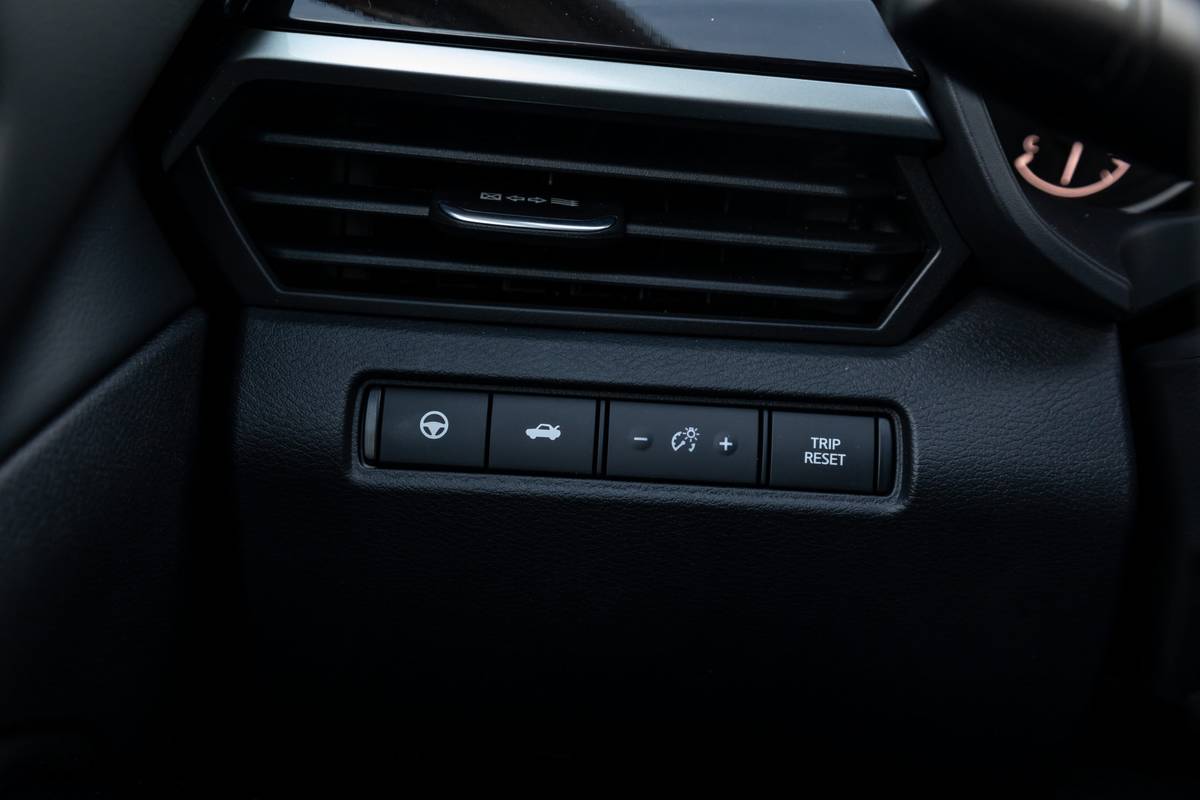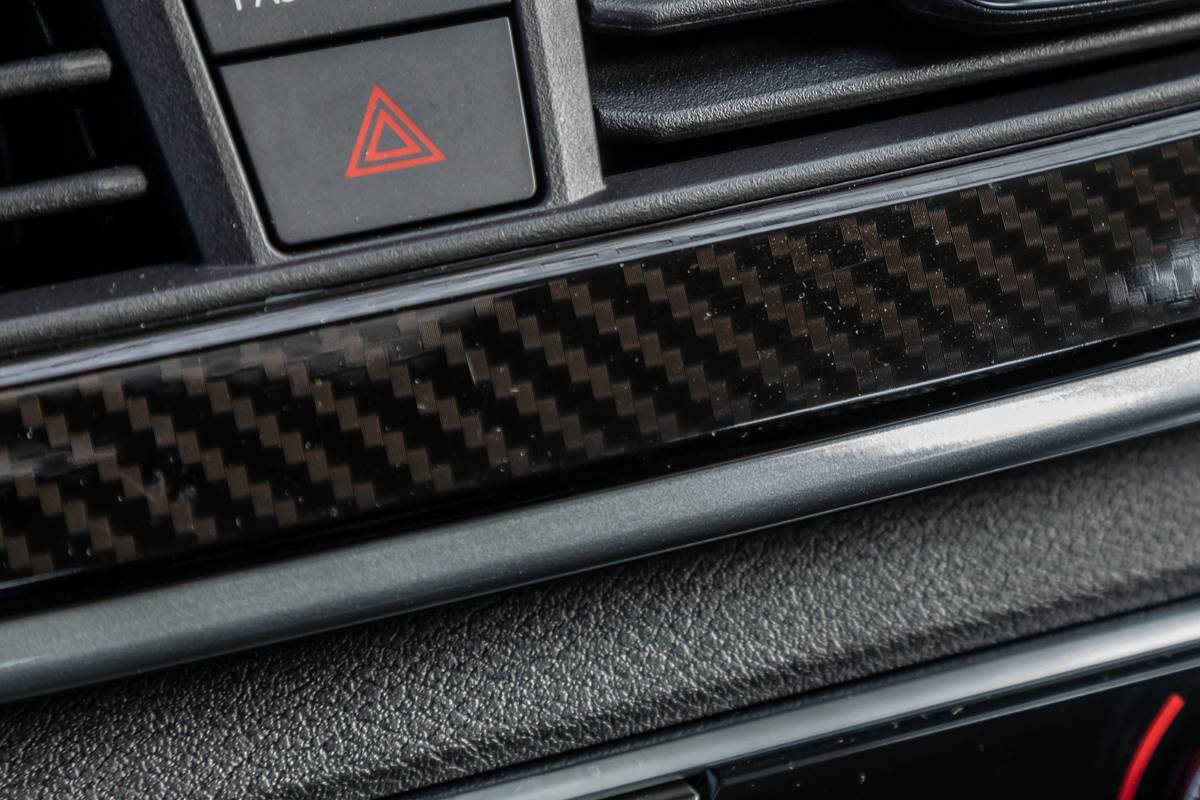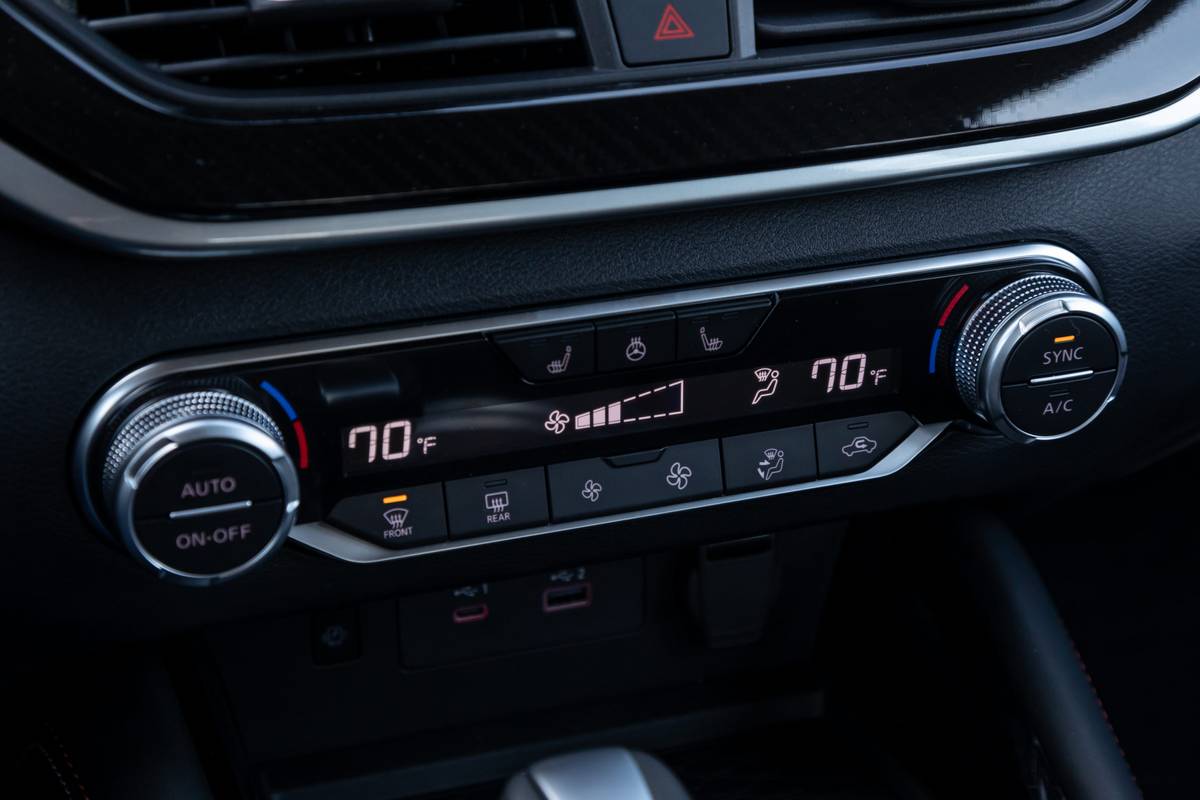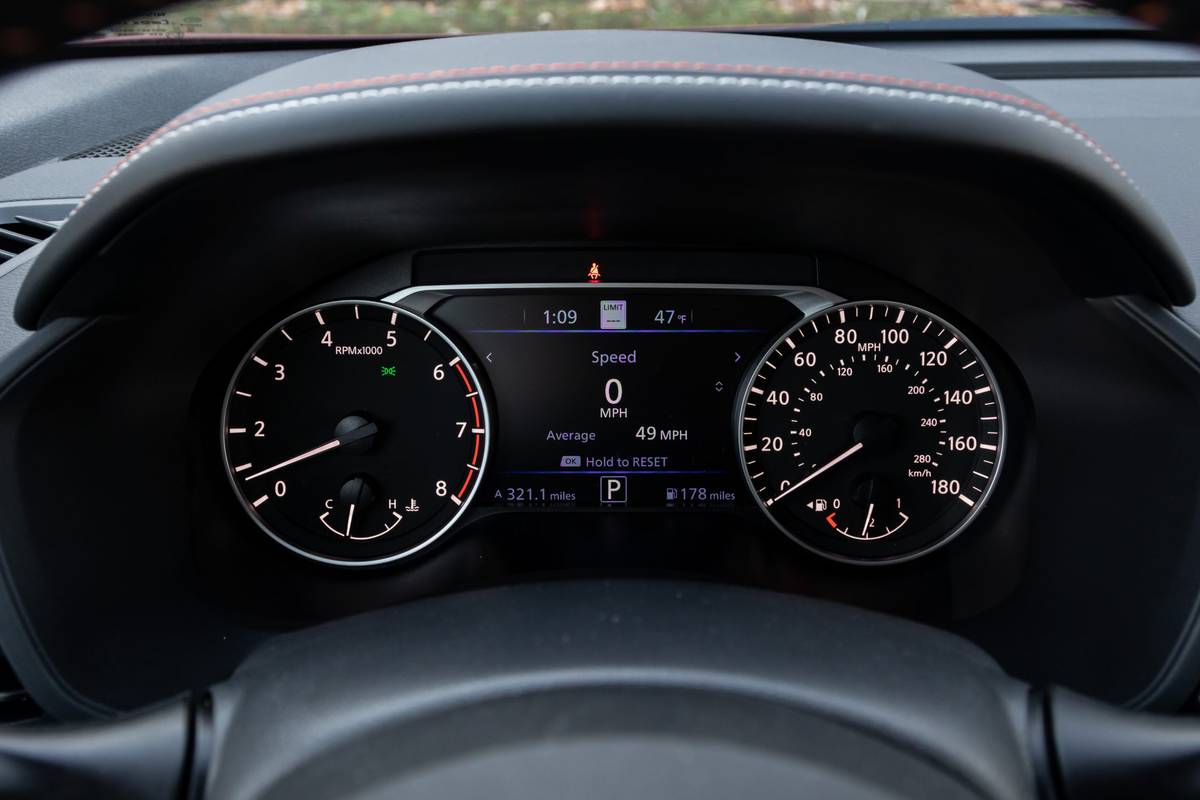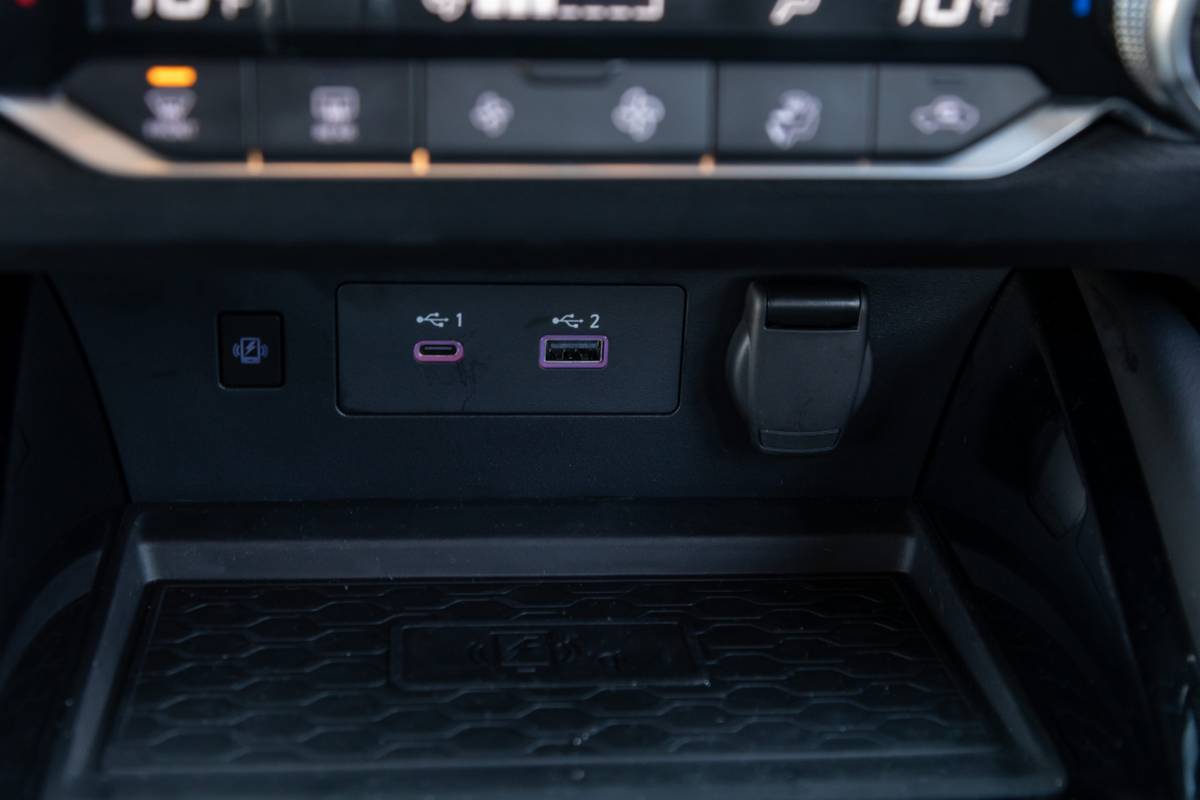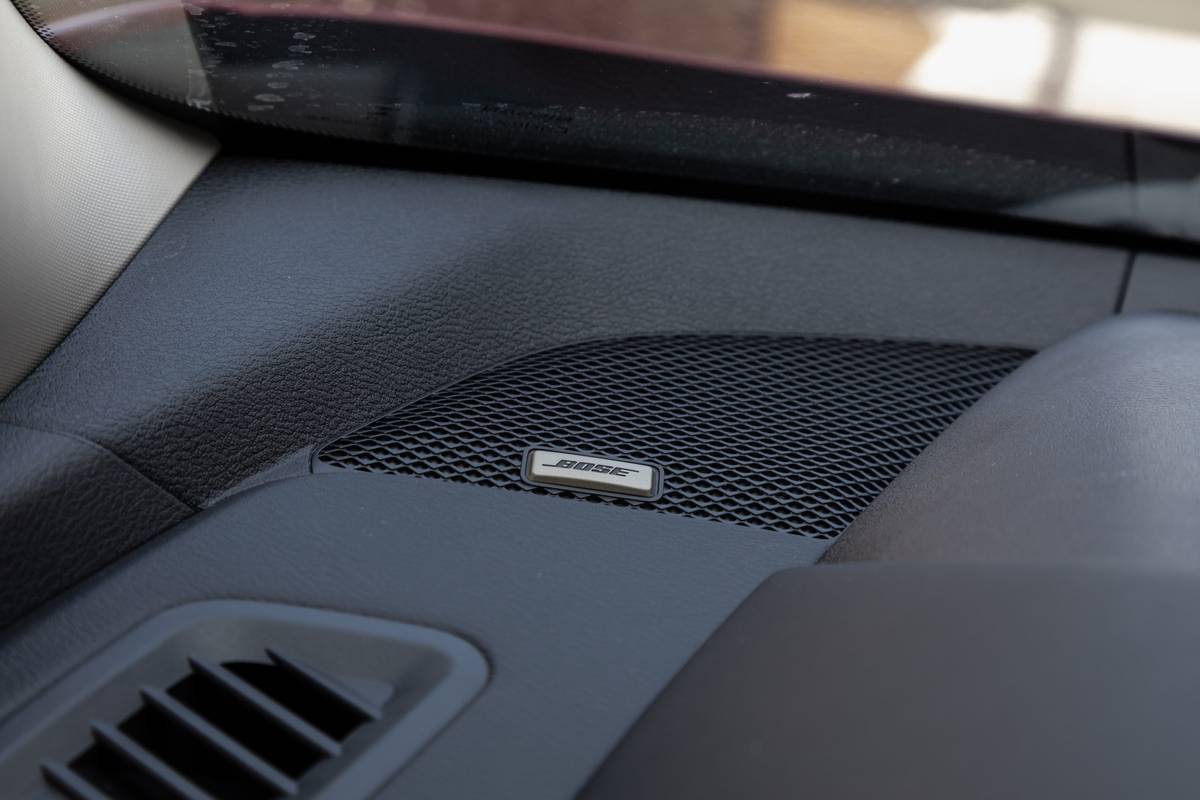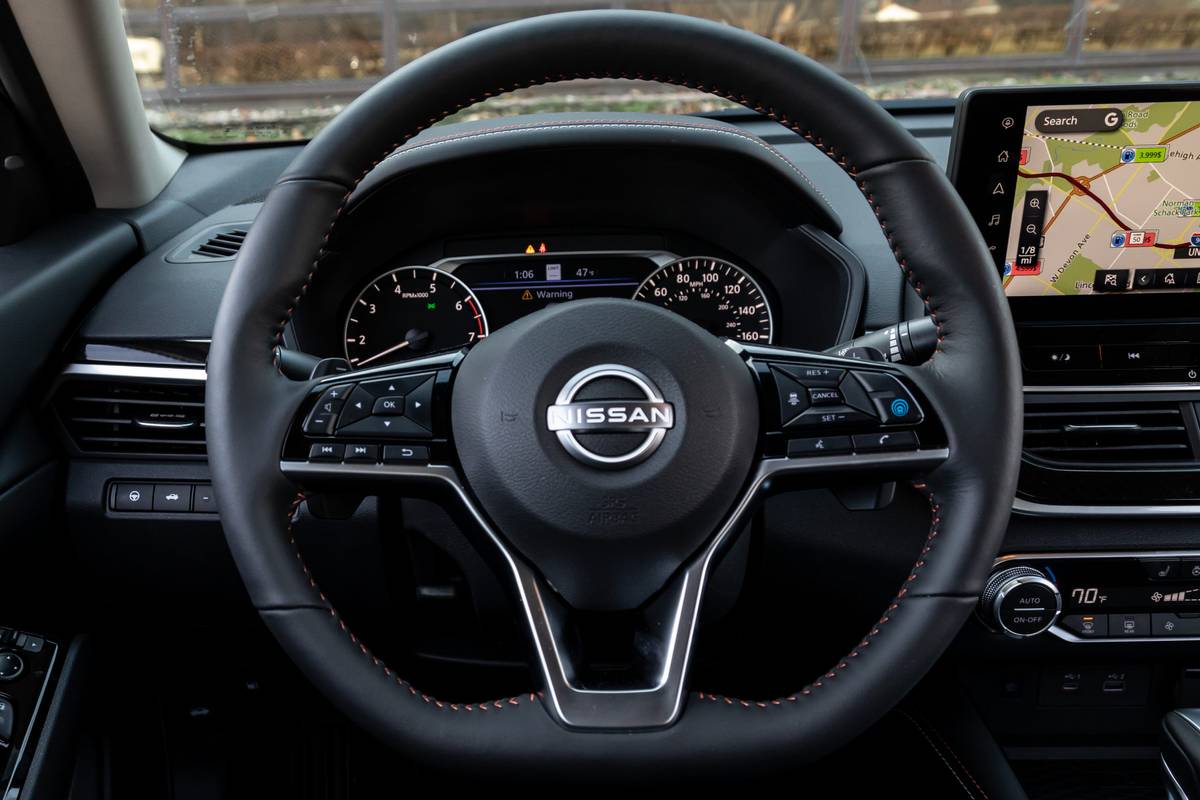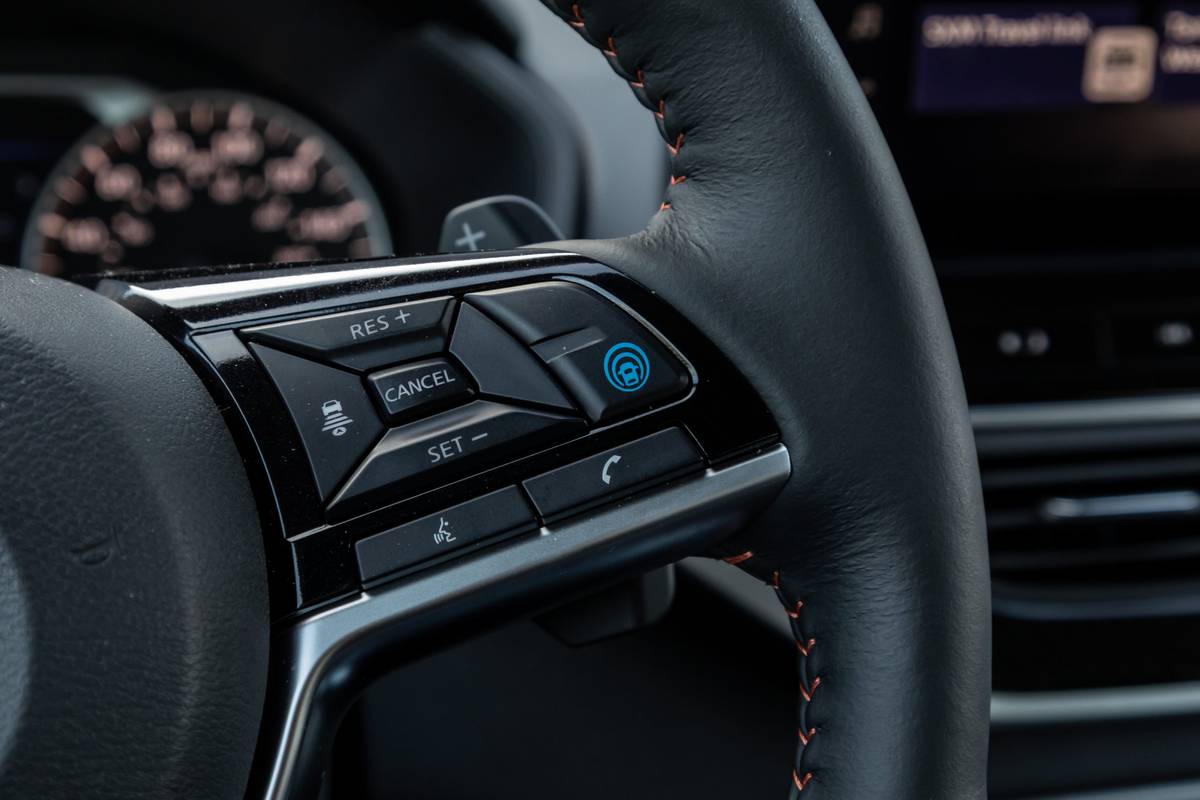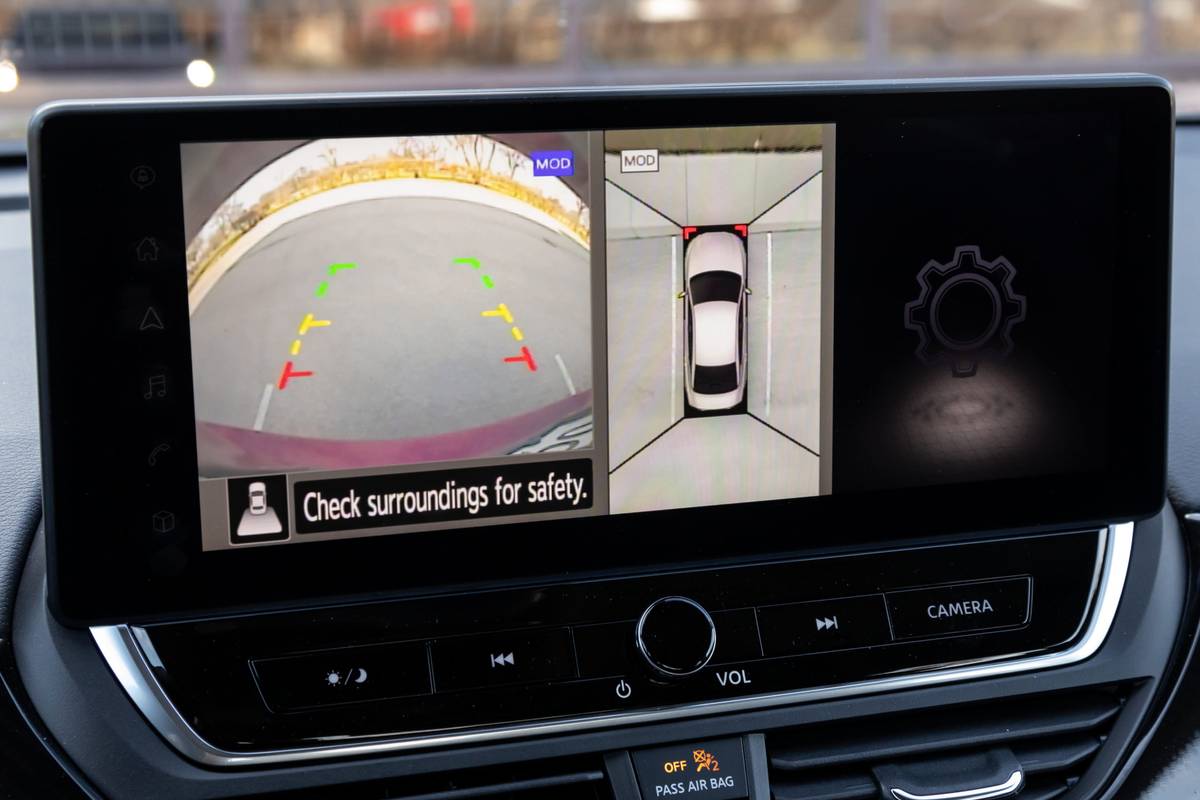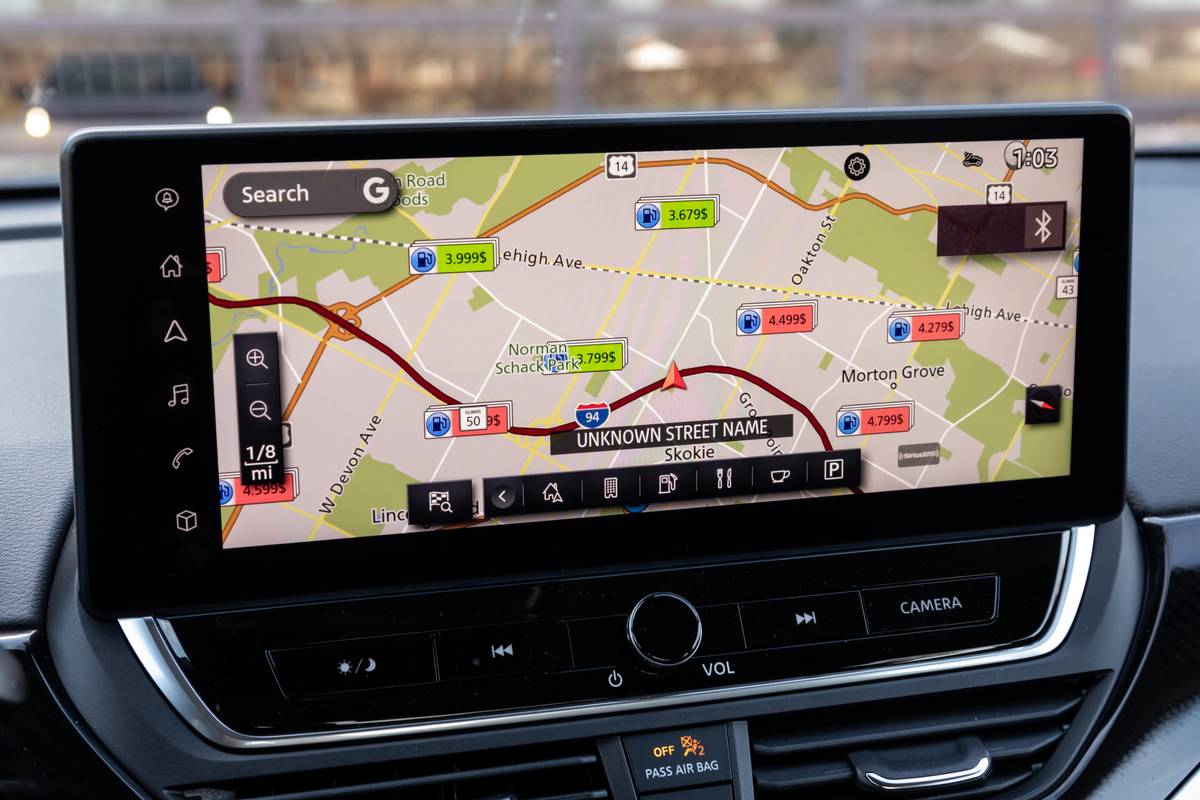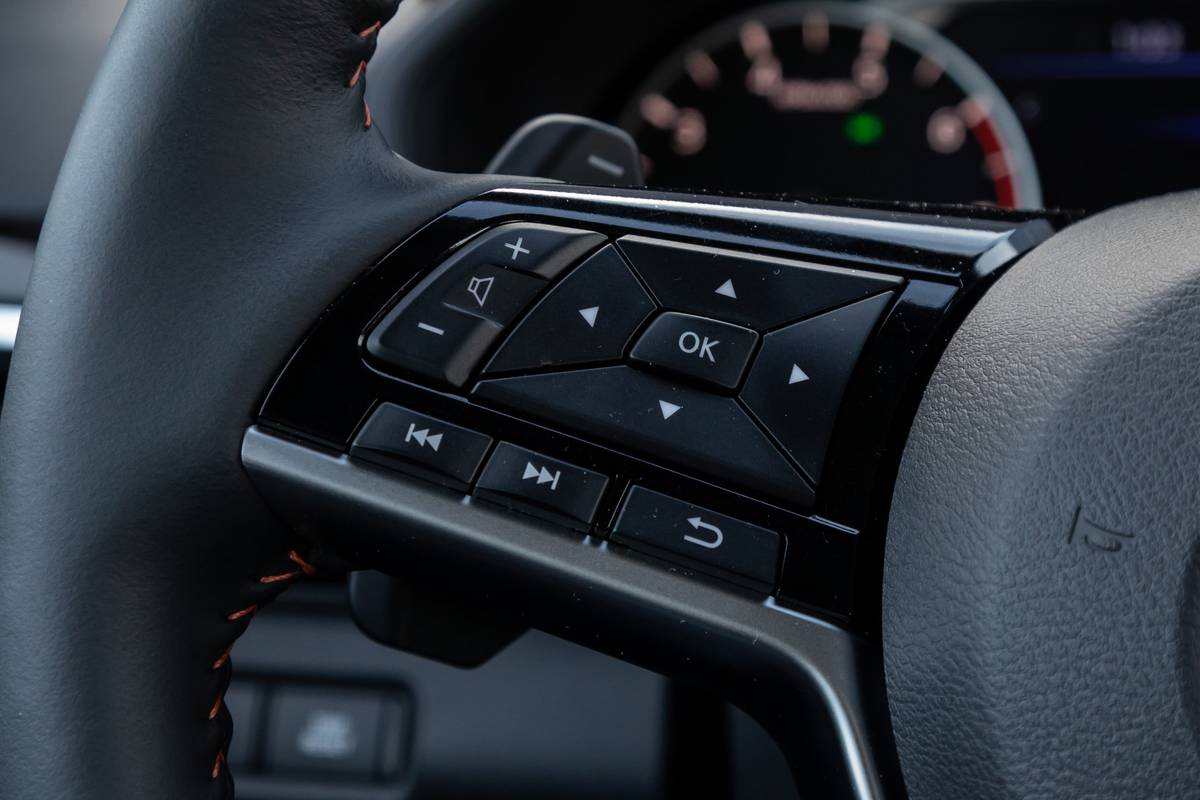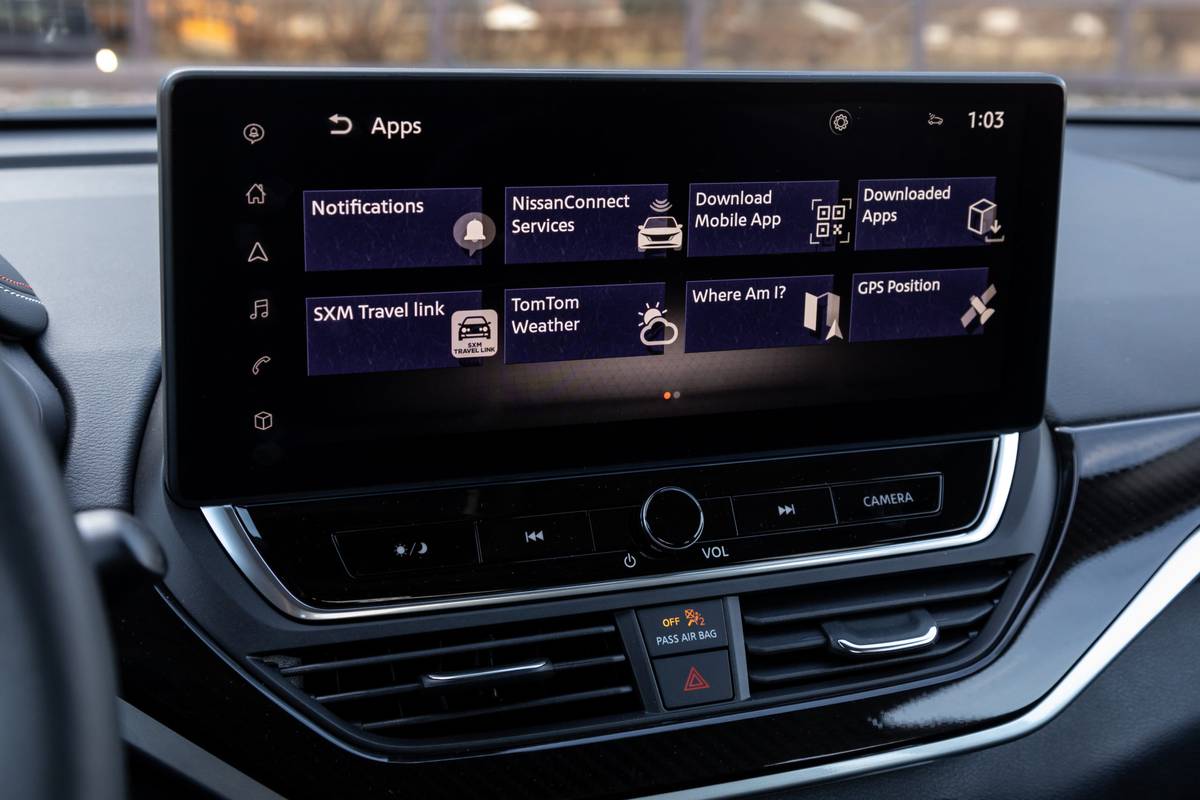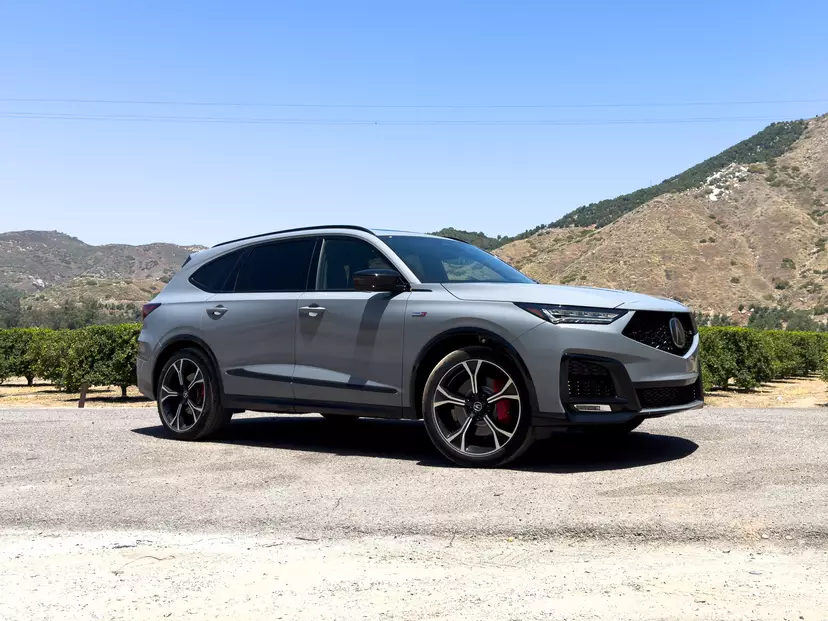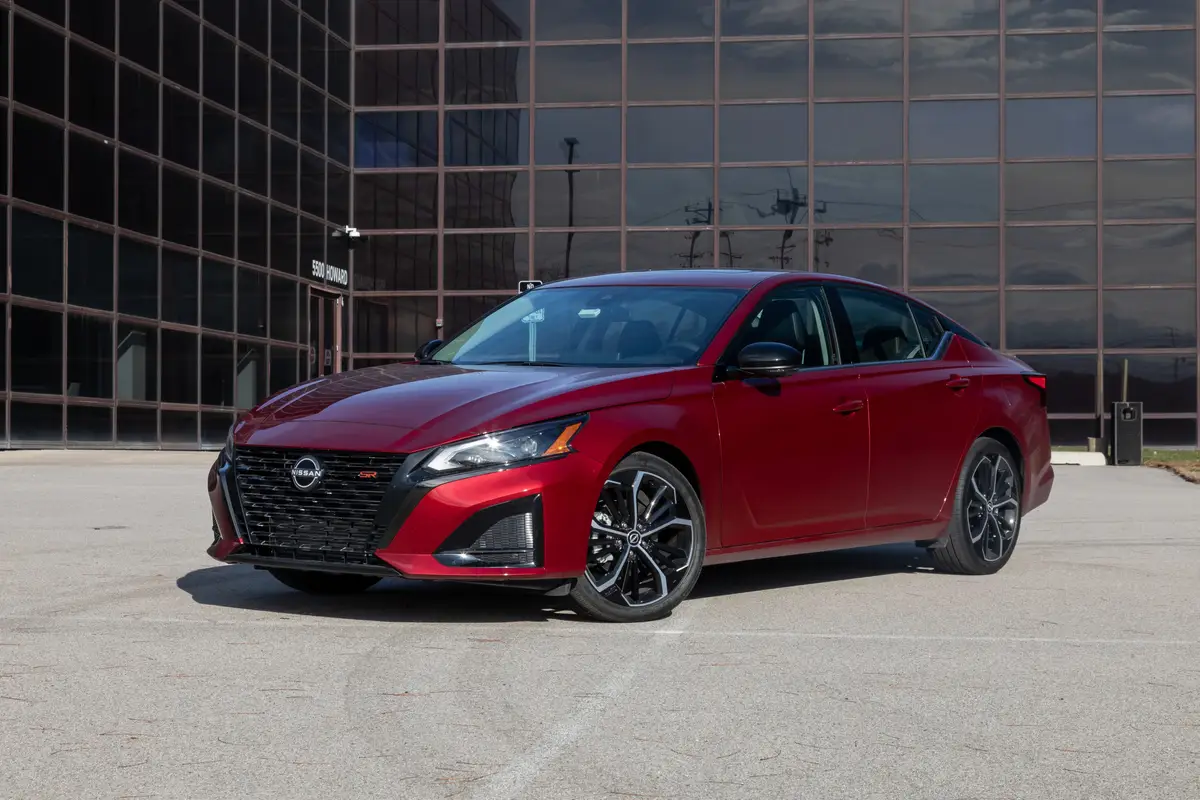
The verdict: The 2023 Nissan Altima 2.0 SR isn’t quite as sporty as it looks, but it’s a pleasant, respectably quick mid-size sedan that’s comfortable and accommodating.
Versus the competition: The Altima stacks up well against other mainstream mid-size sedans; its optional turbocharged four-cylinder isn’t as powerful as the step-up engines in the Hyundai Sonata, Kia K5 and Toyota Camry, but it feels nearly as fast. The Altima does not, however, have a hybrid version, as do the Sonata, Camry and Honda Accord.
The current-generation Nissan Altima isn’t that old — it debuted as a fully redesigned model for the 2019 model year — but in some ways it feels like a car designed for another time; compact and mid-size SUVs, such as the Nissan Rogue and Pathfinder, are the family haulers of choice for most American shoppers these days. Yet mid-size sedans like the Altima are versatile, capable vehicles that offer sleeker styling and sharper cornering capabilities than the typical SUV. I drove a 2023 Altima 2.0 SR on a Thanksgiving road trip, and it presented itself as a respectable alternative to an SUV — and to the more popular Honda Accord and Toyota Camry mid-size sedans.
Related: 2023 Nissan Altima: Fresh Face, Wireless Tech, More Standard Safety
The Altima underwent a mild refresh for 2023 that brought facelifted front-end styling, new designs for the available 17- and 19-inch alloy wheels, a couple of new color choices and, most importantly, a newly available 12.3-inch infotainment touchscreen. The 2022 sedan’s largest display was an 8-inch touchscreen. Base models now come with a higher level of standard safety features, and new options include a wireless charging pad and wireless Apple CarPlay smartphone connectivity; Android Auto is still wired-only.
Turbocharged and Almost as Sporty as It Looks
A slight reshuffling of trim levels for 2023 means the 2.0 SR trim we tested is now the top-line car in the Altima lineup, taking the place of the discontinued Platinum trim. Choosing the 2.0 SR VC-Turbo is the only way to get the Altima’s top engine choice: a VC-Turbo 2.0-liter four-cylinder with a variable compression ratio, generating 248 horsepower on premium gasoline and 236 hp on regular gas. Those are respectable ratings — easily outclassing the Altima’s standard 188-hp, 2.5-liter four-cylinder — but they trail the output of some rivals’ optional engines. Both the Hyundai Sonata and Kia K5 offer a 290-hp, turbocharged 2.5-liter four-cylinder, and the Camry has a gutsy naturally aspirated 3.5-liter V-6 that makes 301 hp. The Accord previously offered a turbocharged 2.0-liter four-cylinder that made a satisfying 252 hp, but that engine was discontinued in the Accord’s redesign for 2023, leaving only a 192-hp base engine and a 204-hp hybrid powertrain.
Like the K5 and Camry, the Altima offers all-wheel drive only with its base four-cylinder engine. If you want all-weather traction and stronger acceleration in a mainstream mid-size sedan, the Subaru Legacy comes standard with AWD and offers an optional 260-hp, turbocharged 2.4-liter four-cylinder.
The Altima 2.0 SR doesn’t feel particularly quick off the line, but the turbo engine’s power builds nicely to provide healthy passing power. The exhaust note is laudably quiet during steady-speed cruising, but it can sound a little coarse and “groany” when accelerating quickly. Regardless of engine, the Altima comes solely with a continuously variable automatic transmission. CVTs are good for smoothness and fuel economy, but they’re often not as good at providing a sporty driving experience. In place of the fixed gears and crisp shifts of a traditional sport-tuned automatic transmission, CVTs have a “rubber-band” feel, with engine rpm temporarily rising higher than expected when accelerating. SR trim levels include steering-wheel paddle shifters that mimic the shift feel of a traditional stepped-gear automatic transmission, but the effect isn’t very convincing.
The Altima 2.0 SR is EPA-rated 25/34/29 mpg city/highway/combined, which is 2-3 mpg combined better than its Hyundai, Kia and Toyota rivals. My observed fuel economy was in step with the EPA’s estimates: With the car fully loaded and running on regular gasoline, I averaged 31.6 mpg over almost 760 miles of mostly highway driving, with temperatures in the upper 30s to low 40s.
SR trims have a sport-tuned suspension and 19-inch wheels with low-profile all-season tires. Ride quality is a bit brittle over bumps around town, but it smooths out nicely at highway speeds. Handling is balanced and competent (certainly better than the typical compact or mid-size SUV), but I wouldn’t call this a true sports sedan. Steering feel isn’t particularly communicative, and the Altima has no selectable drive modes of any kind. There’s no Sport mode to dial in a weightier steering feel or sharper throttle response, and no Eco mode to soften throttle response and transmission tuning. These are curious omissions for a 2023 passenger car.
Spacious, Comfy Interior
Interior ambiance is pleasant, with a nice touch of sportiness. SR trims get nicely updated upholstery for 2023, with attractive orange and white contrast stitching, and all Altimas come with Nissan’s “Zero Gravity” front seats, which are designed to reduce fatigue on long drives. I found them supportive and comfortable during my six-hour road trip, but they felt oddly spongy on my backside. I also worry that the soft, “sink-in” feel of the cushions might make the seats uncomfortably toasty on hot summer days, and the Altima doesn’t offer ventilated seats.
Passenger space is competitive for the Altima’s class. There’s ample room in the front seats, with respectable space in the back for average-sized adults, though the sloping rear roofline cuts into backseat headroom a bit. Legroom back there also gets tight for tall folks when the front seats are adjusted all the way back.
By Nissan’s measurements, the Altima’s trunk has 15.4 cubic feet of space, which is on par with the rest of its class. I worried I’d have to play “trunk Tetris” when loading up the car for my family road trip, but all our stuff — two carry-on-sized suitcases, a large duffel bag, a trumpet case, a large skateboard, and two large trash bags filled with bedding and gifts — fit without much hassle. I did, however, need to ensure the trunk lid’s uncovered arms wouldn’t squash anything.
Agreeable Controls
The control layout is simple and straightforward, and the upsized infotainment screen is a welcome upgrade to what was already one of the better infotainment systems in the class. Bluetooth phone connections sync up almost instantly upon start-up, and the feature-rich navigation system includes restaurant and gas-station callouts on the map display, complete with real-time gasoline prices (higher prices are listed in red, lower prices in green).
The available wireless charging pad is another welcome addition. It’s conveniently located at the front of the center console, and its grippy surface kept my phone in place during spirited cornering. There’s also a clearly visible indicator light, so it’s easy to see that a phone is successfully charging. I also appreciated the illuminated front- and backseat USB-A and USB-C ports that were easy to find in the dark.
The Altima does still have a few irksome details. It’s a pity, for instance, that the rearview camera wasn’t upgraded along with the touchscreen; the image is low-resolution compared to what you’ll find in most current vehicles, and it’s especially hazy and washed out at night. SL and 2.0 SR trims get Nissan’s ProPilot Assist lane-centering adaptive cruise control system, which is a nice feature on a long highway drive. The lane departure warning system, however, includes an “Intelligent Lane Intervention” feature that I found more annoying than helpful. It applies slight, momentary braking pressure if the vehicle touches a lane marking on the road, which was a little too vigilant for my tastes on the highway; it activated whenever the car’s tires even grazed the lane markings. The system can be turned off, but I would have preferred a slightly more forgiving setting.
Value for the Money
The 2023 Altima 2.0 SR’s base price is $36,085, including destination. Our test vehicle added Scarlet Ember Tintcoat paint ($395) and a $355 package that consisted of floormats, a trunk mat, a hideaway cargo net for the trunk and dual trunk hooks. All told, the price tag was $36,835. Equipped to a comparable level, the similarly zippy Hyundai Sonata N-Line and Kia K5 GT check in at $35,815 and $37,315, respectively. A slightly ritzier and better-equipped Toyota Camry XSE V-6 lands at around $39,500. The sportier-still Camry TRD, which starts at $34,380, also has V-6 power but is not as well-equipped and has a very limited range of optional features.
Save the Camry XSE V-6, all these prices undercut the higher trim levels of most popular compact SUVs, most of which don’t offer engines with more than 240 hp. Just one more reason to look outside the SUV norm when shopping for a family vehicle.
More From Cars.com:
- Refreshed 2023 Nissan Altima Adds Tech, Mostly Minor Price Tweaks
- How Do Car Seats Fit in a 2022 Nissan Altima?
- Most Mid-Size Cars Falter in New IIHS Crash Test, Subaru Outback Endures
- Research Sedans
- Shop for a 2023 Nissan Altima
Related Video:
We cannot generate a video preview.
Cars.com’s Editorial department is your source for automotive news and reviews. In line with Cars.com’s long-standing ethics policy, editors and reviewers don’t accept gifts or free trips from automakers. The Editorial department is independent of Cars.com’s advertising, sales and sponsored content departments.































